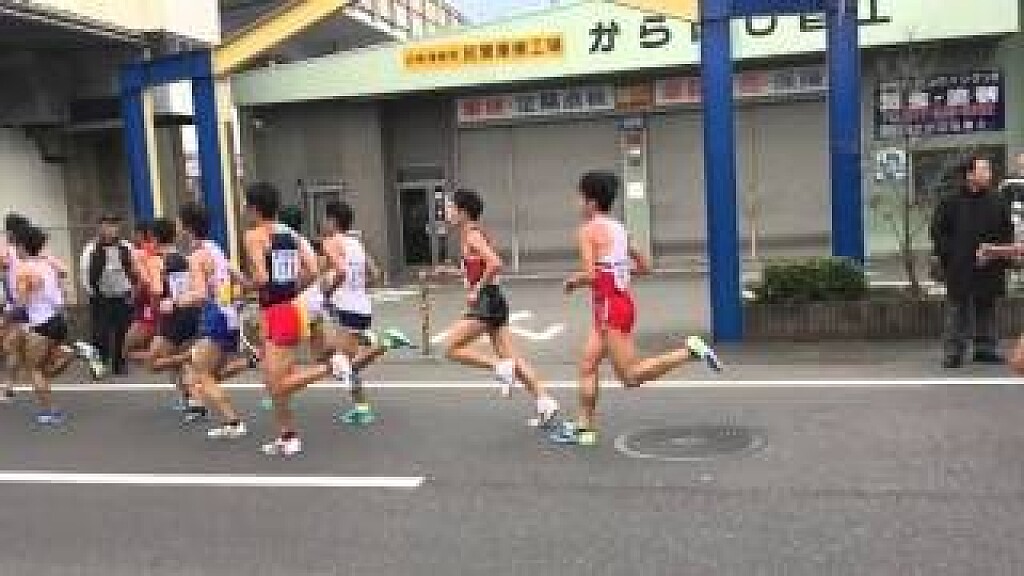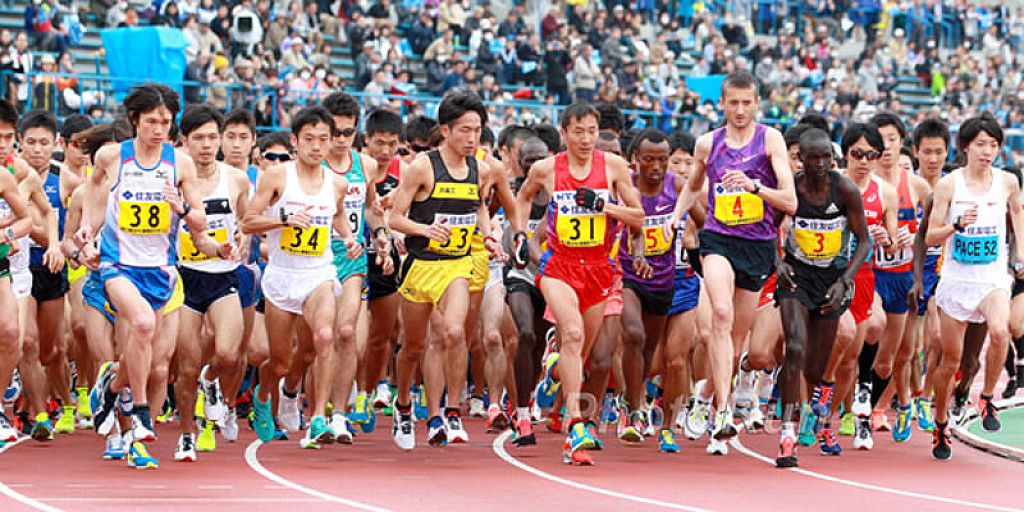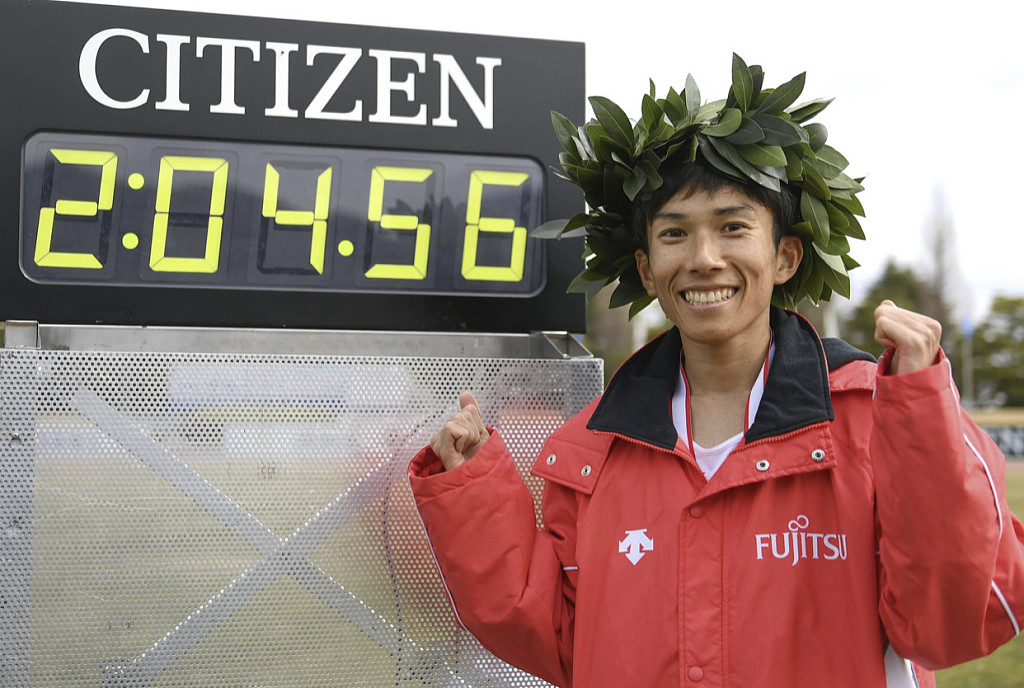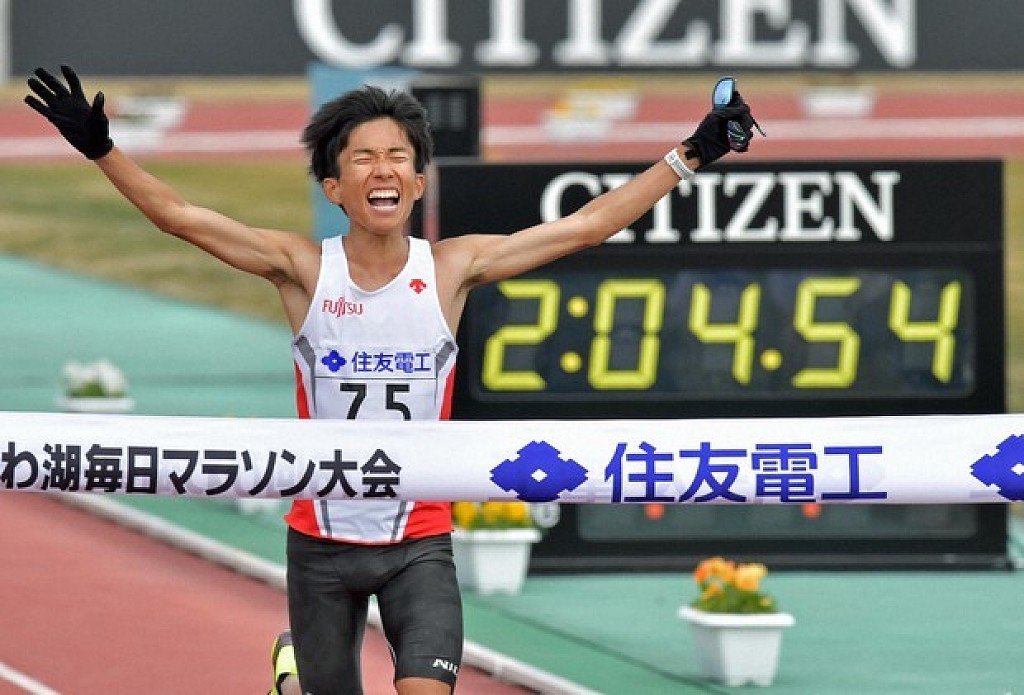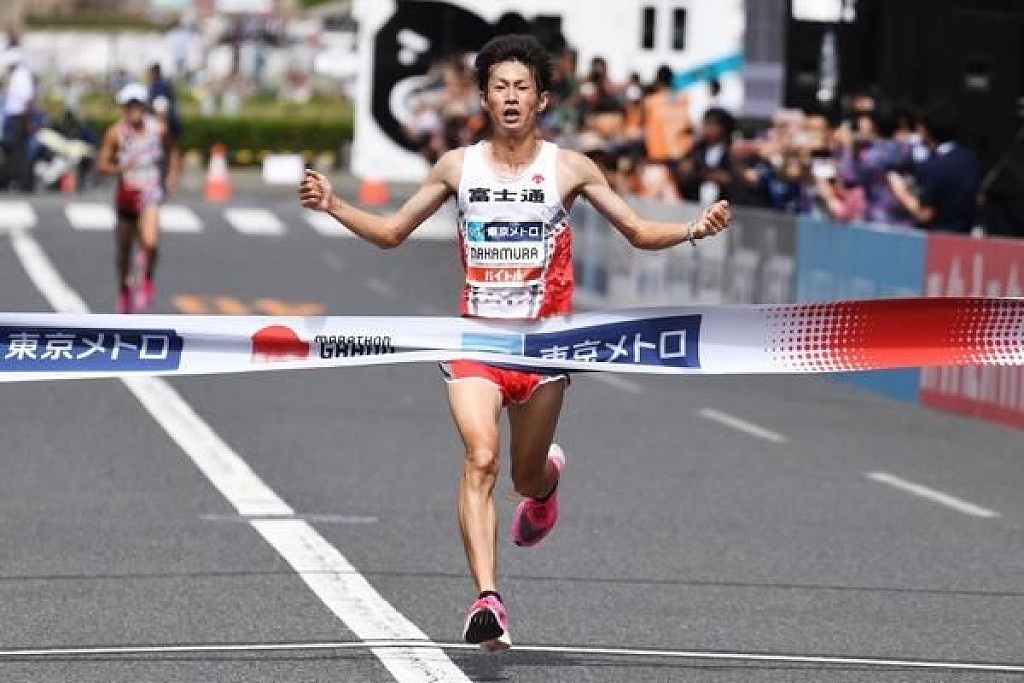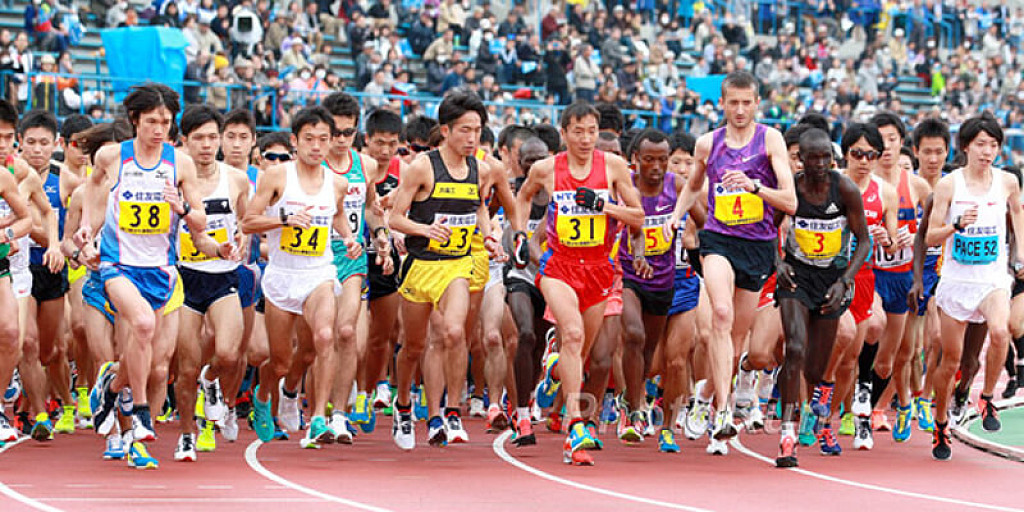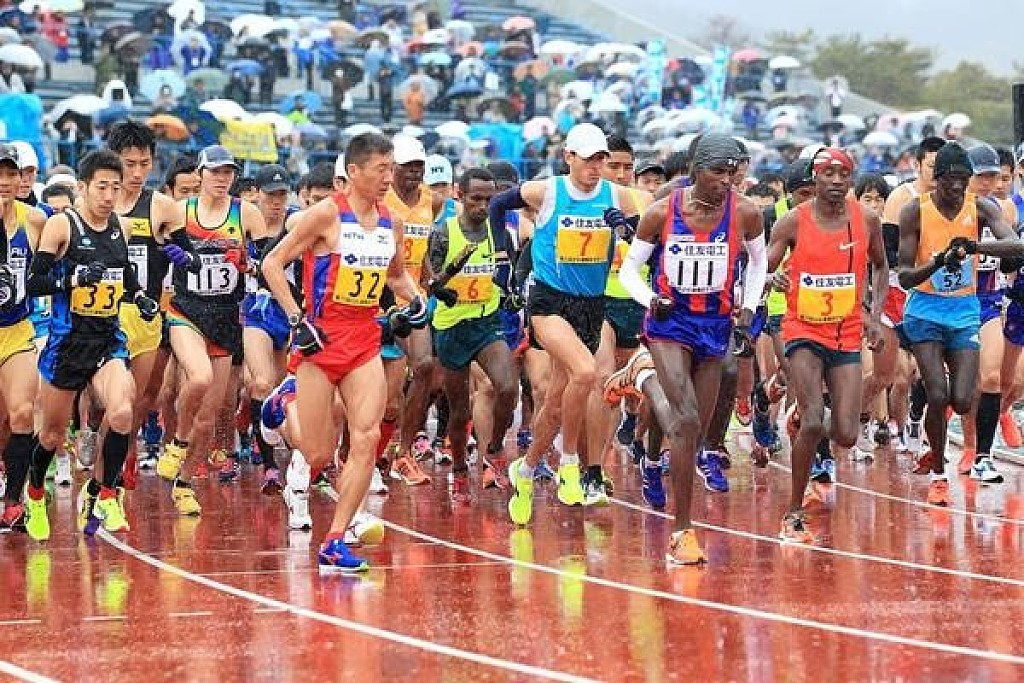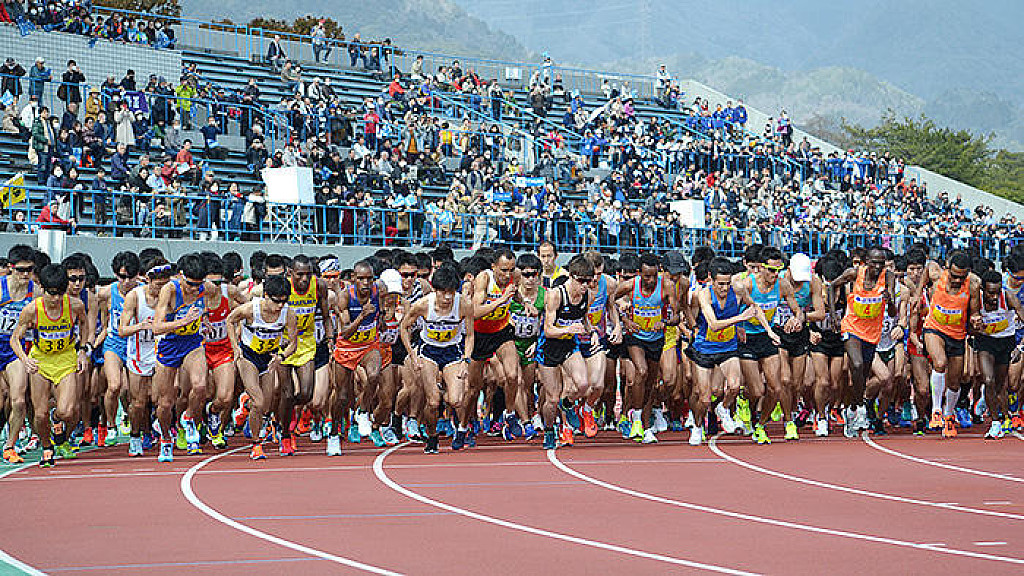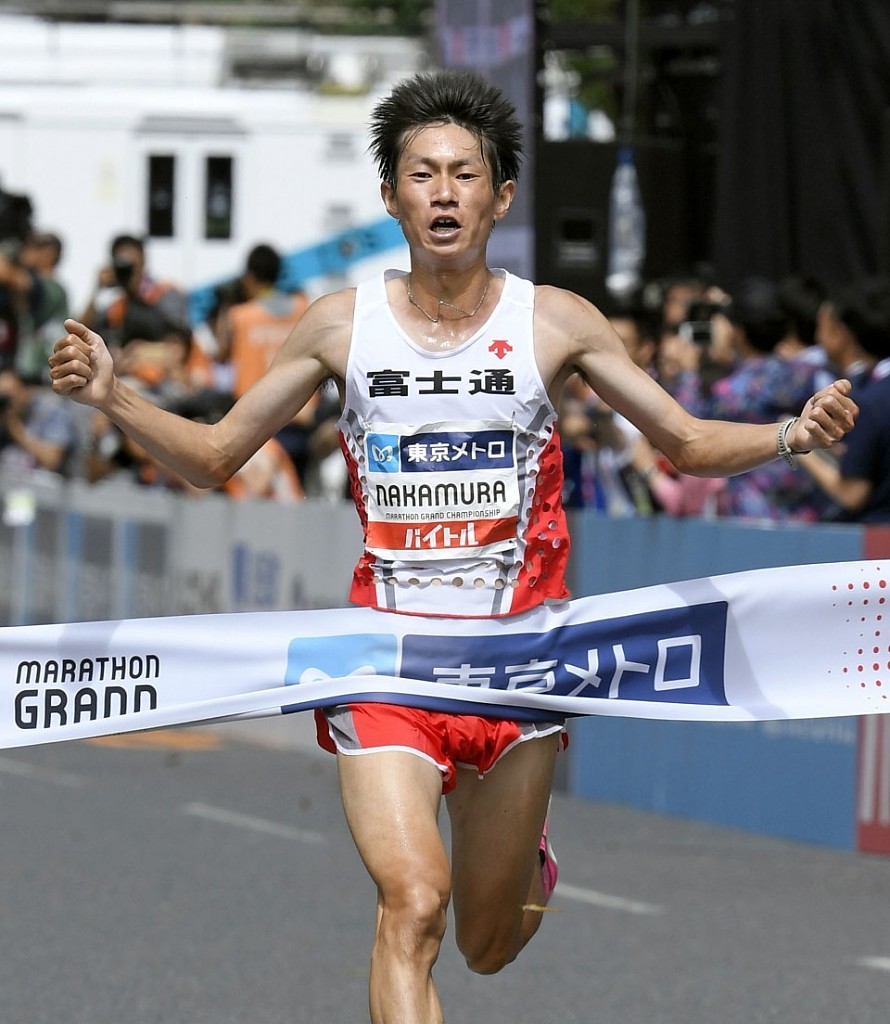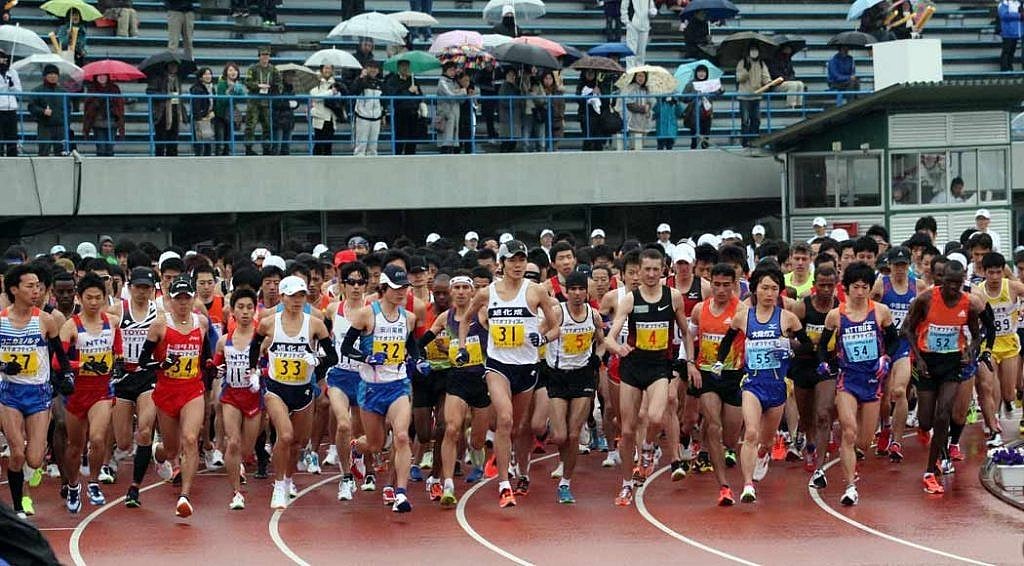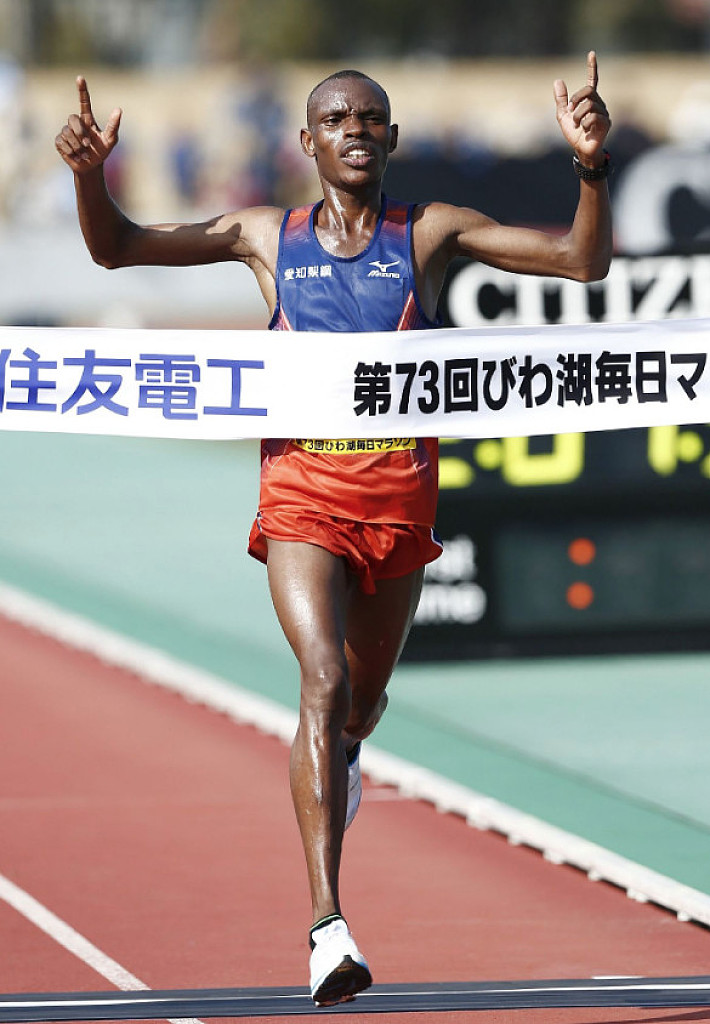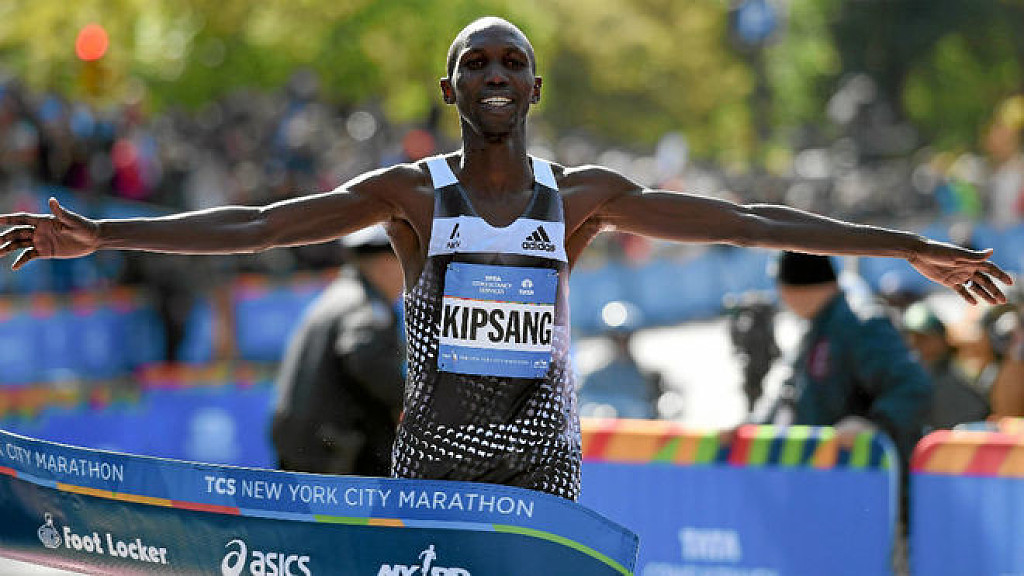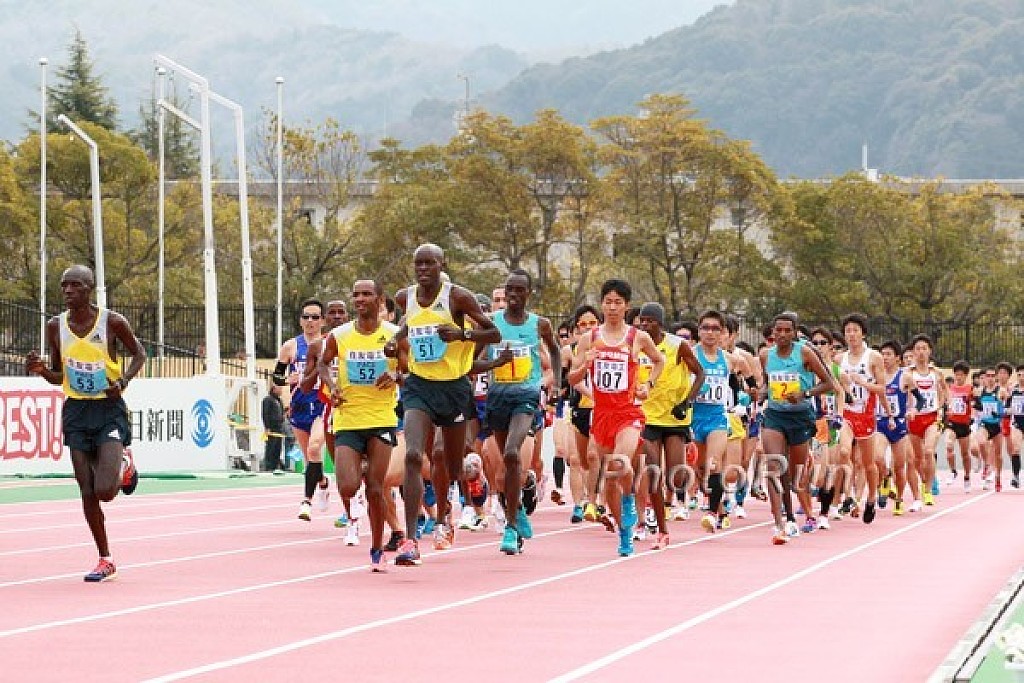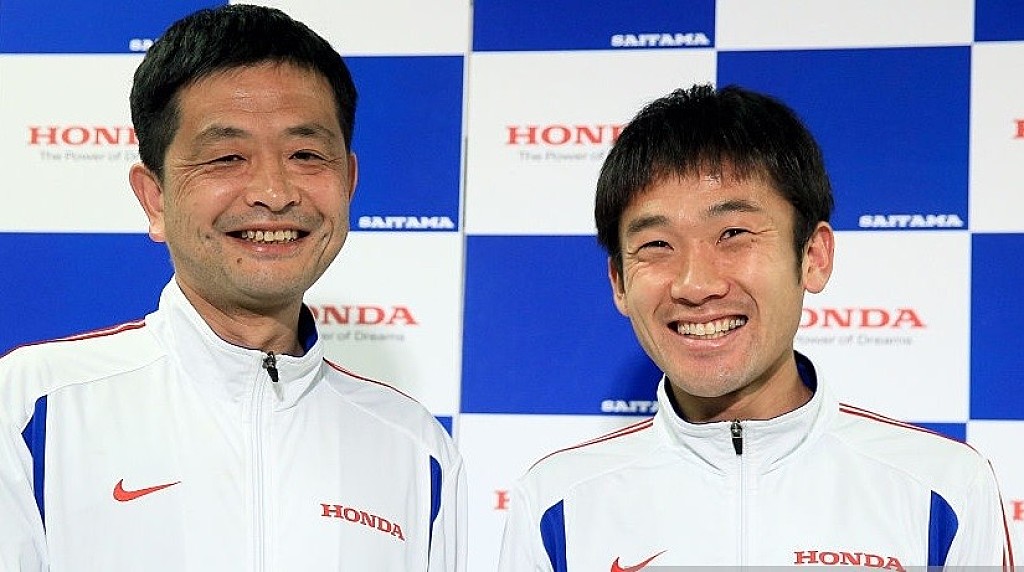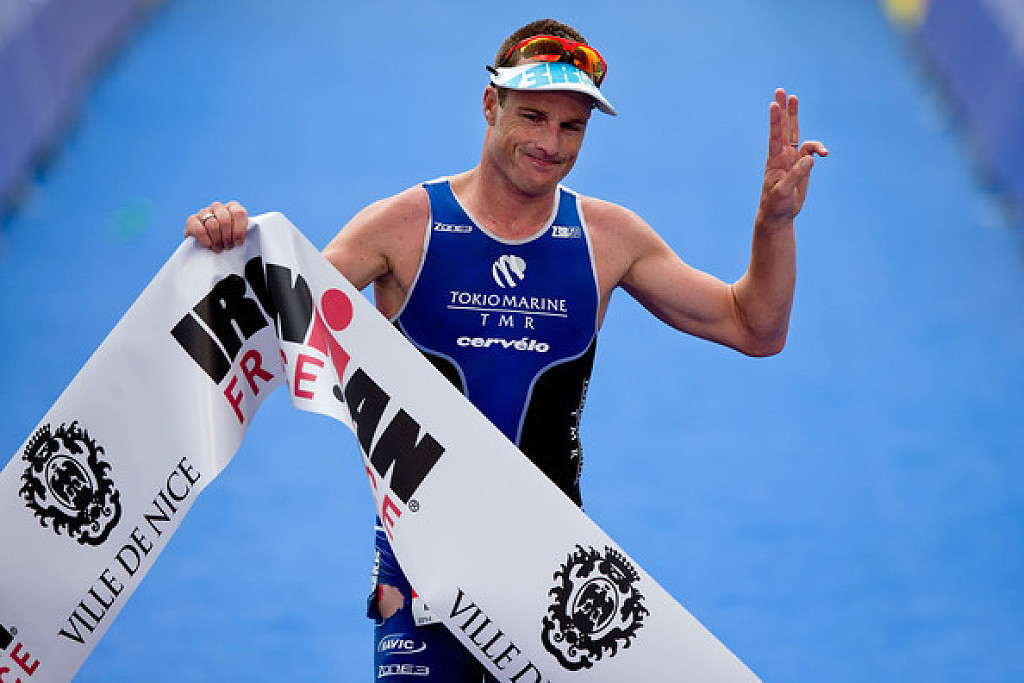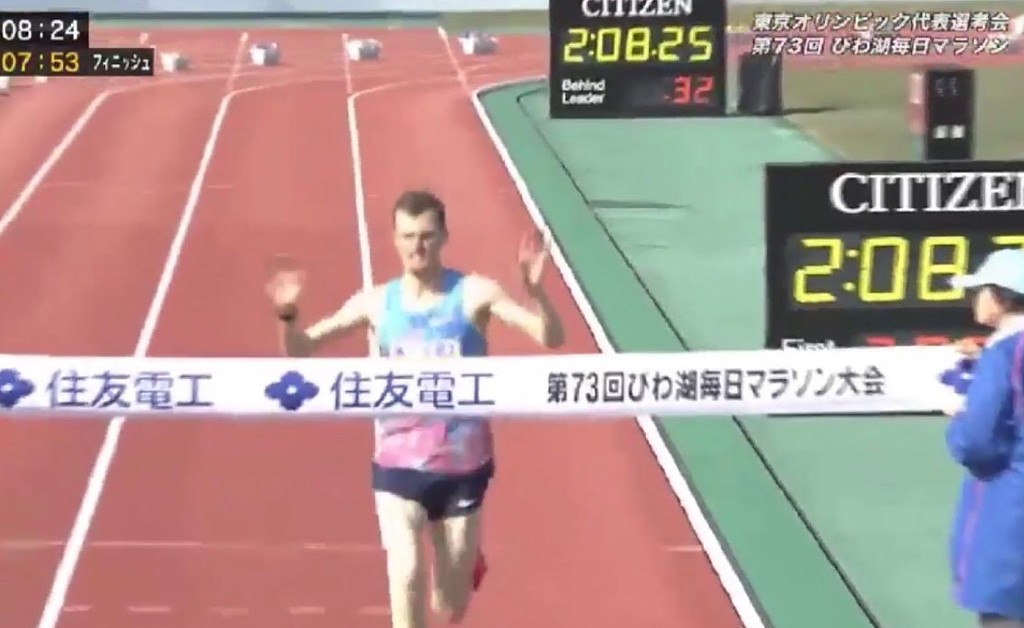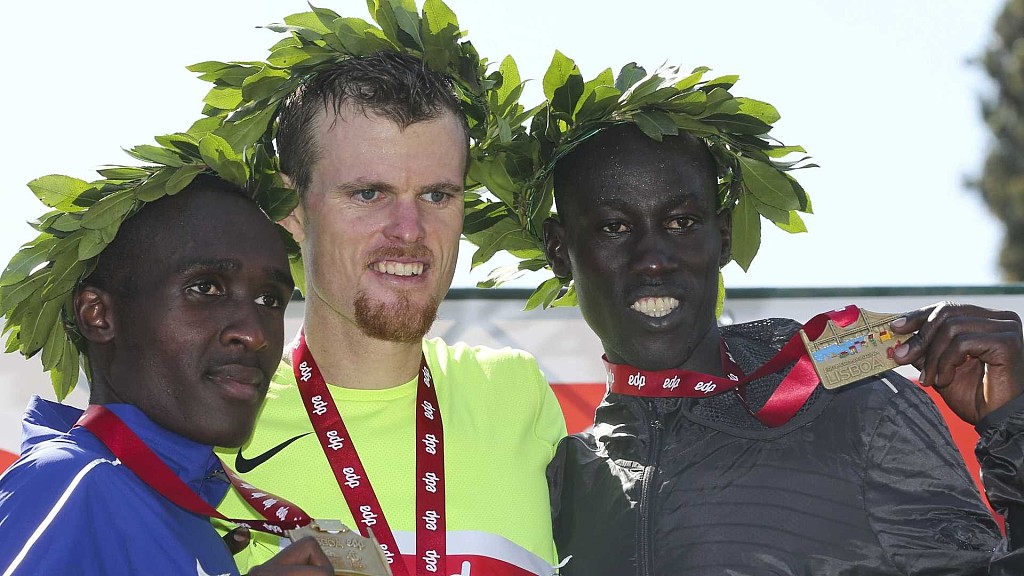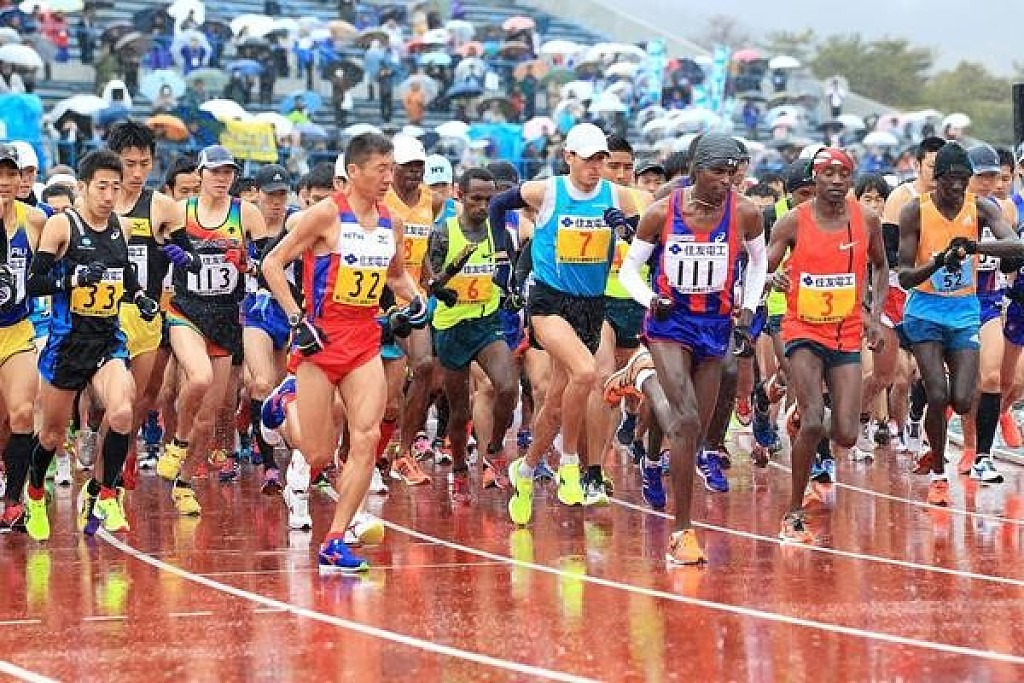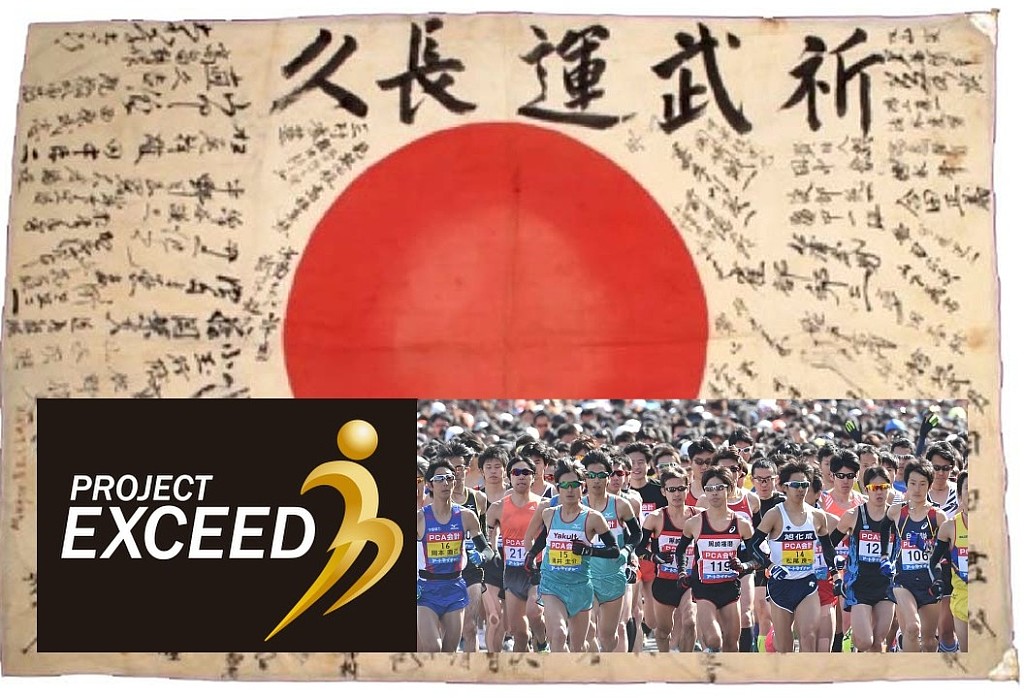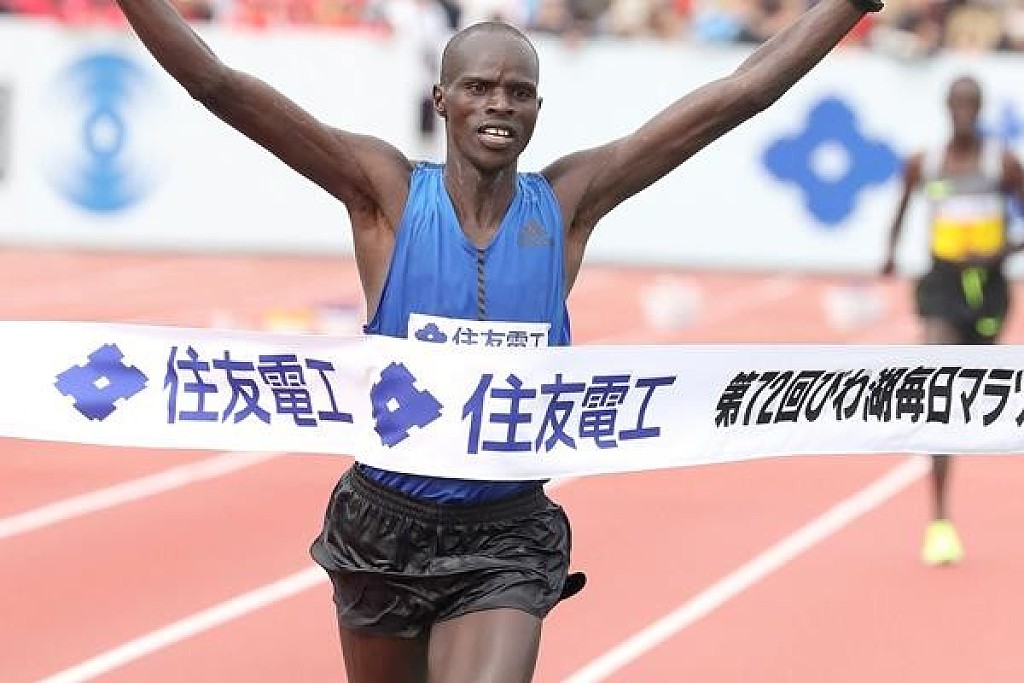Running News Daily
Running News Daily is edited by Bob Anderson. Send your news items to bob@mybestruns.com Advertising opportunities available. Train the Kenyan Way at KATA Kenya and Portugal owned and operated by Bob Anderson. Be sure to catch our movie A Long Run the movie KATA Running Camps and KATA Potato Farms - 31 now open in Kenya! https://kata.ke/
Index to Daily Posts · Sign Up For Updates · Run The World Feed
Rising star Gaku Hoshi thrills in joint Osaka-Biwako marathon
Gaku Hoshi won Sunday’s combined Osaka Marathon and Lake Biwa Mainichi Marathon, capturing the new event on the national running calendar in his first race at that distance.
In a race featuring 300 elite male and female runners, the 23-year-old Hoshi broke out of a three-man pack around the 38-kilometer mark and ran solo the rest of the way to win in 2 hours, 7 minutes and 31 seconds — a record for a first-time marathoner.
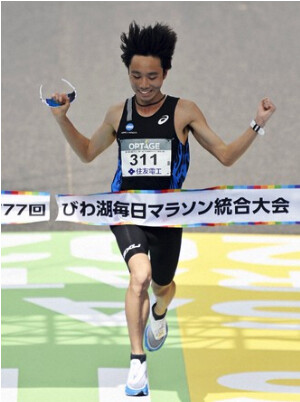
“This was my first marathon and I didn’t think I would win so this is a surprise,” Hoshi said.
“It’s too good to be true but I’m super happy. I knew it would come down to the last stages so I went aggressively after the 30-km mark. It went as planned,” he said.
On a clear and sunny day, the 42.195-km race started in front of the Osaka Prefectural Government Building and finished at Osaka Castle Park.
Hoshi stayed in a leading group of 10 runners after the last turn, and after his pacemaker dropped out the race continued as a three-man contest between Hoshi, Ichitaka Yamashita and Yuhei Urano.
Yamashita finished second, 11 seconds behind Hoshi, and Urano was third. Misato Horie won the women’s division.
Seven runners including the top three men’s finishers qualified for Japan’s Marathon Grand Championship to determine the qualifiers for the 2024 Paris Olympics.
The elite men-only Lake Biwa Mainichi Marathon, Japan’s oldest annual marathon race with 76 editions so far, became a part of the mass-participation Osaka Marathon beginning this year.
The 2022 edition involved only elite athletes, with 20,000 mass-event runners excluded due to coronavirus concerns.
Login to leave a comment
Osaka Marathon
In 2022 the Lake Biwa Mainichi Marathon and Osaka Marathon were held together. For 2023 the name of the marathon will be Osaka and both men and women can run the race. The original male-only competition was first held in 1946 and, having taken place every year since then, it is Japan's oldest annual marathon race. The early editions of...
more...Lake Biwa Mainichi Marathon organizers look forward
The 76th Lake Biwa Mainichi Marathon race held on February 28 this year concluded as the best edition ever held, with the establishment of a new Japanese men’s national record and the first ever performance of under 2 hours 4 minutes by an Asian athlete.
The Lake Biwa Mainichi Marathon boasted the longest history of any marathon in Japan. It has traditionally been a men-only elite race with approximately 300 entries each year. In order to catch up with the trends of the world’s major marathon races the race organizers have decided to move the race, leaving the beloved course in Otsu city in Shiga prefecture and relocating to Osaka, using the course of the present Osaka Marathon, and combining the elite race with the mass participation Osaka Marathon.
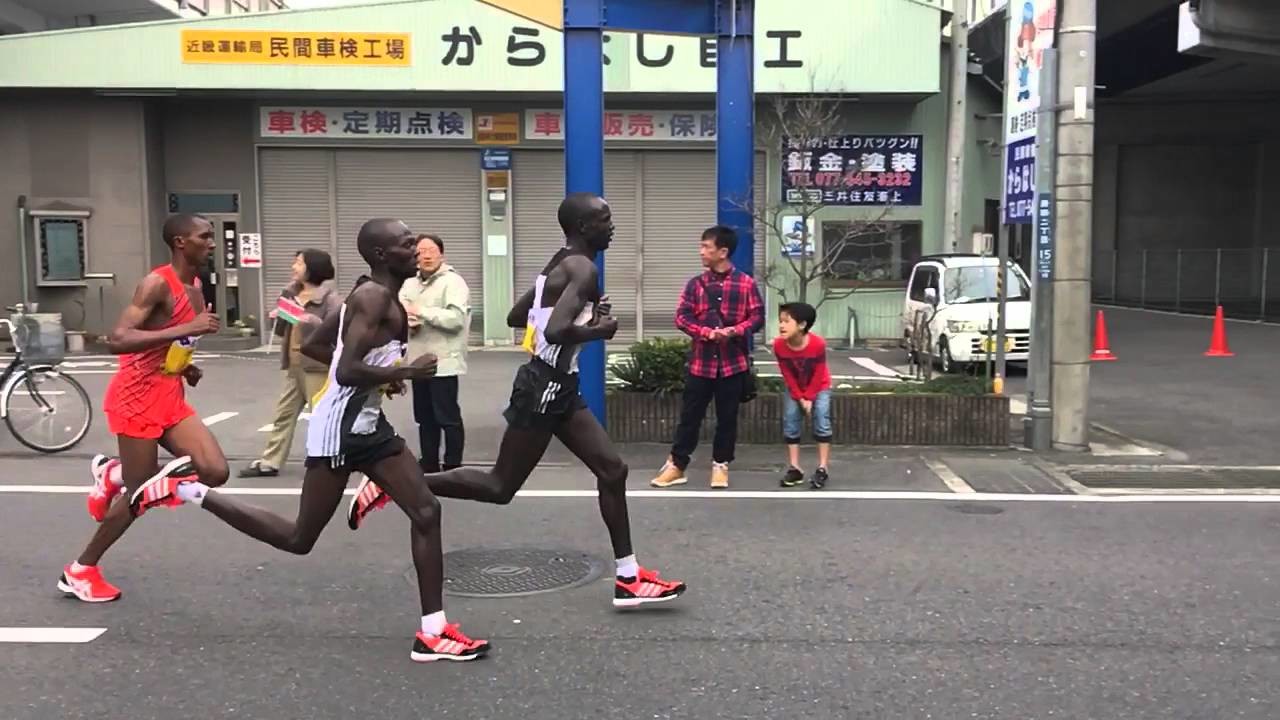
The 10th Osaka Marathon was to be held in November 2020 with 32,000 participants anticipated but had to be cancelled due to the COVID-19 pandemic. The organization of the event itself is perfect but until 2019 Osaka Marathon had not had attracted serious elite athletes.
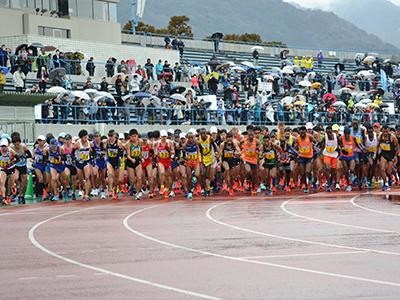
On February 27, 2022 a new event had been planned, combining the 10th Osaka Marathon and the 77th Lake Biwa Mainichi Marathon with a total of 35,000 runners provided. Because of the continuing impact of the COVID-19 virus this number has now been revised to 20,000.
The elite race level of the Lake Biwa Mainichi Marathon will be maintained on the Osaka Marathon course route. The Japan Association of Athletics Federations (JAAF), the Osaka Prefecture and the Mainichi Newspapers will be the joint organizers of the race, and NHK will continue to broadcast on TV, providing live coverage in Japan and overseas.
The invited athletes will be sufficient in quality and quantity to retain a Gold Label. The Mainichi Newspapers will remain responsible for the management of the elite athletes.
by AIMS
Login to leave a comment
Osaka Marathon
In 2022 the Lake Biwa Mainichi Marathon and Osaka Marathon were held together. For 2023 the name of the marathon will be Osaka and both men and women can run the race. The original male-only competition was first held in 1946 and, having taken place every year since then, it is Japan's oldest annual marathon race. The early editions of...
more...Kengo Suzuki still in state of shock after setting Japan marathon record
A day after his blistering run at the Lake Biwa Mainichi Marathon, Kengo Suzuki was still coming to grips with his status as a new Japanese national record holder on Monday.
Suzuki surprised even himself by setting the national men’s marathon record of 2 hours, 4 minutes, 56 seconds in Sunday’s race along the shores of Japan’s largest freshwater lake in Shiga Prefecture.
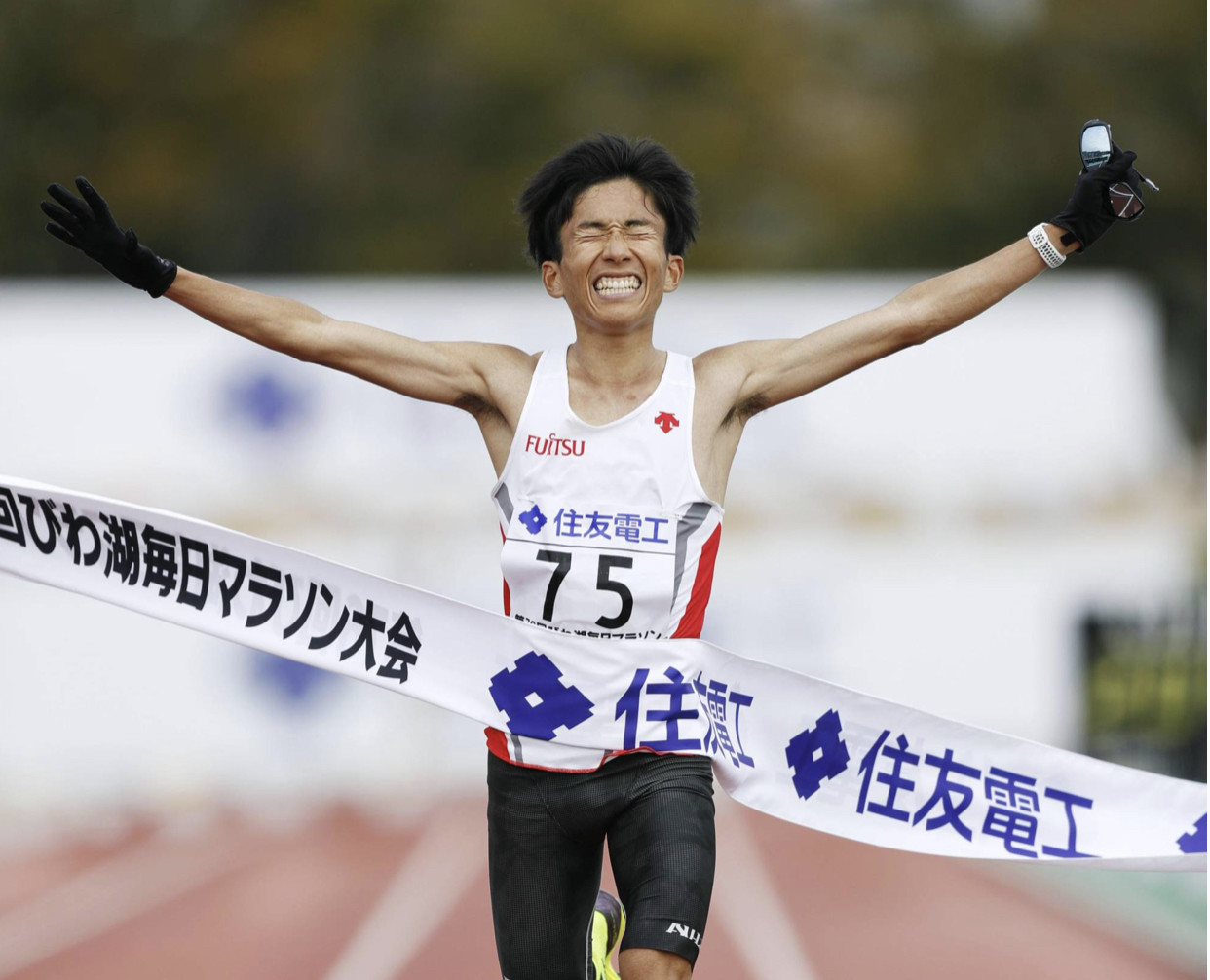
“It’s slowly sinking into my head that I actually set a new national record,” Suzuki said in an online press conference.
“(The race) has done more damage to my legs than I had imagined, so I’m going to take some time to rest before I move on to my next goal,” he said.
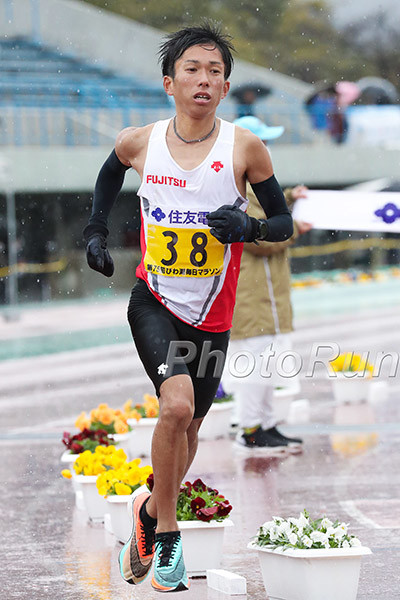
Suzuki’s win made him the first Japanese runner to complete a sub-2:05 marathon. He was among the more than 300 men lined up to run the Lake Biwa Mainichi Marathon, one of the country’s most prominent races.
The unheralded Suzuki finished 12th in the same race last year, but this year he chopped more than five minutes off his previous personal best of 2:10:21, set in 2018.
Now the 25-year-old has set his sights on the 2024 Paris Olympics.
“(I still lack) the physical toughness to endure high-intensity training and the mental toughness to fend off (other runners’) attempts to unsettle me,” he said. “It’s important that I work out consistently every day.”
The previous national record of 2:05:29 was set last March at the Tokyo Marathon by Suguru Osako, who secured qualification for the Tokyo Olympics.
Kenya’s Eliud Kipchoge holds the official marathon world record of 2:01:39, which he set at the Berlin Marathon in 2018, as well as the unofficial world record of 1:59:40 from an event in Vienna, Austria, in 2019 held under several artificial conditions.
Suzuki believes himself capable of running a sub-2:04 marathon in the near future, provided he can steer clear of injury.
“I’m getting more comfortable with my marathon training program,” he said. “If I’m able to stay injury-free and I raise my fitness levels, then that time might just be reachable.”
Spectators at Sunday’s race were asked to refrain from cheering on the sidelines as a coronavirus countermeasure.
The event, first run in 1946 in Osaka, moved to Shiga in 1962. But top runners have recently been opting to run the Tokyo Marathon, held around the same time of the year and said to produce better records.
Toshihiko Seko, who booked his berth for the 1988 Seoul Olympics by winning that year’s Lake Biwa Marathon, said, “It was a fitting finale and wonderful. It was a history-changing race.”
Login to leave a comment
Osaka Marathon
In 2022 the Lake Biwa Mainichi Marathon and Osaka Marathon were held together. For 2023 the name of the marathon will be Osaka and both men and women can run the race. The original male-only competition was first held in 1946 and, having taken place every year since then, it is Japan's oldest annual marathon race. The early editions of...
more...Kengo Suzuki clocked 2:04:56 National Record to Win final Lake Biwa Mainichi Marathon
Set to be absorbed into the mass-participation Osaka Marathon as its elite men's field next year the same way the old Tokyo International Marathon was swallowed whole by the Tokyo Marathon, the Lake Biwa Mainichi Marathon wrapped its 76 years as a freestanding event with a bang, a big one, Sunday in Otsu.
Everything was on. The conditions were good, light clouds, 7ËšC, 57% humidity and light breezes at the start. The field was good, 24 men having run sub-2:10 in the last three years and 52 sub-2:12. The pacing was good, the lead trio of pacers hitting almost every split within a couple of seconds of the target 2:58/km and the second group pacers even closer to the 3:00/km target. The shoes were good, across brands.
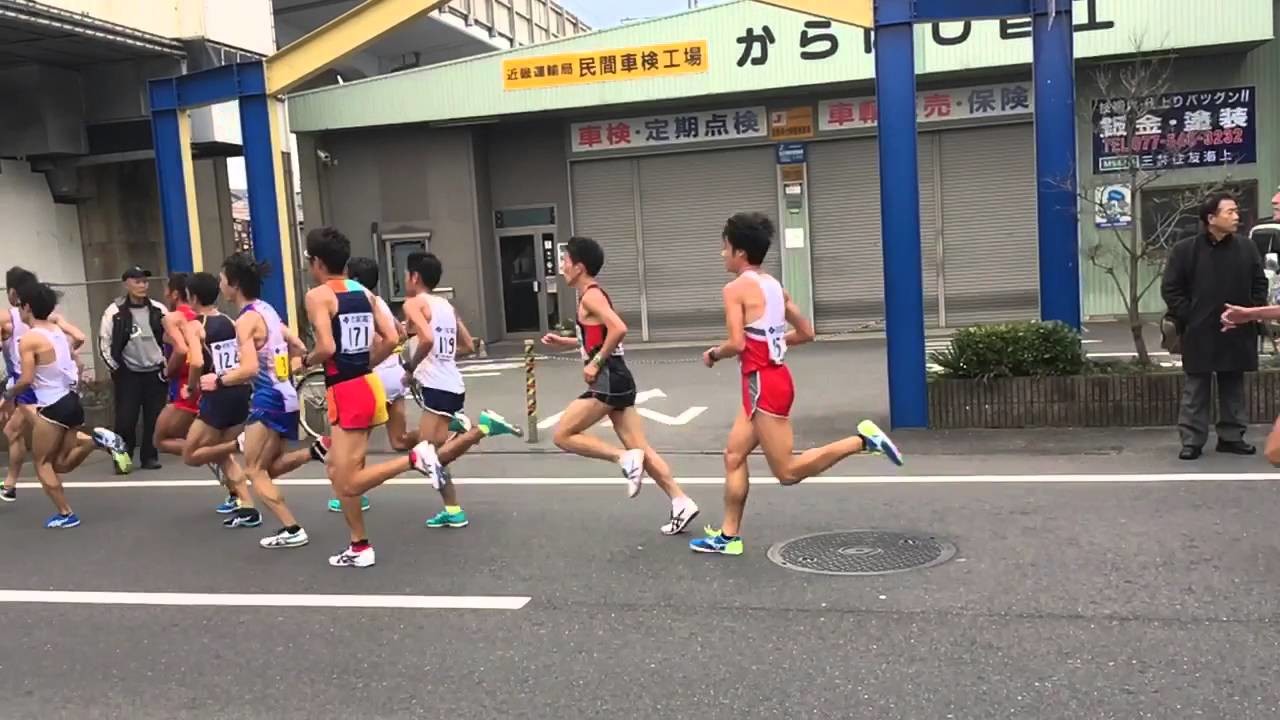
30 or so people went out on pace to go under the 2:05:29 national record in the first group, with what looked like about a hundred on mid-2:06 pace in the second group. Everything went smoothly and steadily, nature taking its course and whittling down both groups until there were only 12 left up front and a couple of dozen in the second group at 25 km when most of the pacers stepped off. Just past that point, Hiroto Inoue (Mitsubishi Juko), the second-fastest man in the field at 2:06:54, made a surge to break away. Lone remaining pacer James Rungaru (Chuo Hatsujo) took his time reeling Inoue back in, just five others still with him when he regained contact 3 km later.
When Rungaru stopped at 30 km past Ageo City Half Marathon winner Simon Kariuki (Togami Denki) took over with five Japanese men, Kengo Suzuki (Fujitsu), Hidekazu Hijikata (Honda), Shuho Dairokuno (Asahi Kasei), Masato Kikuchi (Konica Minolta) and Inoue, strung out single-file behind him. Kariuki slowed slightly to 2:59-3:00/km, but even so Dairokuno, Kikuchi and Inoue started to strain and lose touch. Suzuki and Hijikata, on the other hand, were even smoother and calmer than Kariuki, staying right there behind him.
The only changes until just after 36 km were the gap between the front and back trios widening and Suguru Osako's NR starting to slip out of reach. But at the 36 km drink station Suzuki made his move, one that will be studied for years to come. As they approached the #6 special drink table where Kariuki's bottle waited, Suzuki pulled out from behind him to his right. Just as Kariuki looked to his left to grab his bottle Suzuki attacked, and when Kariuki looked back up the gap was already about 5 m.
It was brilliant. And Suzuki, the 2017 National University Half Marathon champ in 1:01:36 and 2017 World University Games half marathon silver medalist and who made a similar move near 20 km in the MGC Race Olympic trials that ultimately helped his older teammate Shogo Nakamura win, was just getting going. For almost every one of the final 6 km he split in the 2:51~53/km range, bringing the NR back into sight, then 2:05:15, then 2:05:00.
With a final surge in the last 200 m of the track he stopped the clock at 2:04:56, the first Japanese man to break 2:05, 1:17 under former world record holder Wilson Kipsang's course record, and a PB by 5 and 1/2 minutes. "I didn't expect this kind of time at all," he said post-race. "In my other marathons to date I've slowed down in the last part, so the focus today was on finishing hard. I knew that was the right time to make my move." Still just 25, Suzuki's career goal is the Paris Olympics. Unluckily for him, the Project Exceed 100 million yen bonus program for a new national record has already run out. Let's hope he's got another chance to earn that kind of payday before Paris.
Behind him, Hijikata, only 23 and running just his second marathon after a 2:09:50 debut in Tokyo last year right before his graduation from Koku Gakuin University, dropped Kariuki for 2nd in 2:06:26. Likewise doing his second marathon after a 2:28:47 debut at Lake Biwa last year, 25-year-old Kyohei Hosoya (Kurosaki Harima) ran almost perfectly even splits, going through halfway in 1:03:21 to come up from the second group and run down Kariuki, Inoue, Dairokuno and half marathon NR holder Yusuke Ogura (Yakult) for 3rd in 2:06:35. Both Inoue and Ogura held on for sub-2:07 PBs, Inoue 4th in 2:06:47 and Ogura 5th in 2:06:51.
And behind them, the hits kept coming. 10 men ran 2:07. 13 ran 2:08. 14 ran 2:09. Almost all were PBs or debuts. 28 men sub-2:09, 42 sub-2:10. 174 men sub-2:20, the most ever, anywhere, by a long shot. With no Beppu-Oita, Nobeoka or Tokyo this season that may have been a factor of Lake Biwa being the only game in town, but still, can you believe those numbers, even with the usual Japanese depth? With the shoes these days times might not be worth what they used to be, but even if you factor in a couple of minutes this was about as good a demonstration of the sheer depth of quality of the marathon development system here as you could ask for.
And between that and a great race up front it was the perfect sendoff for Japan's oldest marathon before it disappears next year into the maw of Osakan modernity. Farewell, Lake Biwa. Long may you run.
Login to leave a comment
Osaka Marathon
In 2022 the Lake Biwa Mainichi Marathon and Osaka Marathon were held together. For 2023 the name of the marathon will be Osaka and both men and women can run the race. The original male-only competition was first held in 1946 and, having taken place every year since then, it is Japan's oldest annual marathon race. The early editions of...
more...Olympic Trials Winner Shogo Nakamura withdraws from Lake Biwa Mainichi Marathon
After experiencing mild pain in the outer ankle of his left foot and being diagnosed with peroneal tendonitis, Tokyo Olympics men's marathon trials winner Shogo Nakamura (Fujitsu) has made the decision to withdraw from the Feb. 28 Lake Biwa Mainichi Marathon.
Nakamura will take a few days off to rest and plans to resume light jogging next week. However, in combination with not meeting his performance goals at an intensive training camp last month, he has decided to err on the side of caution and withdraw.
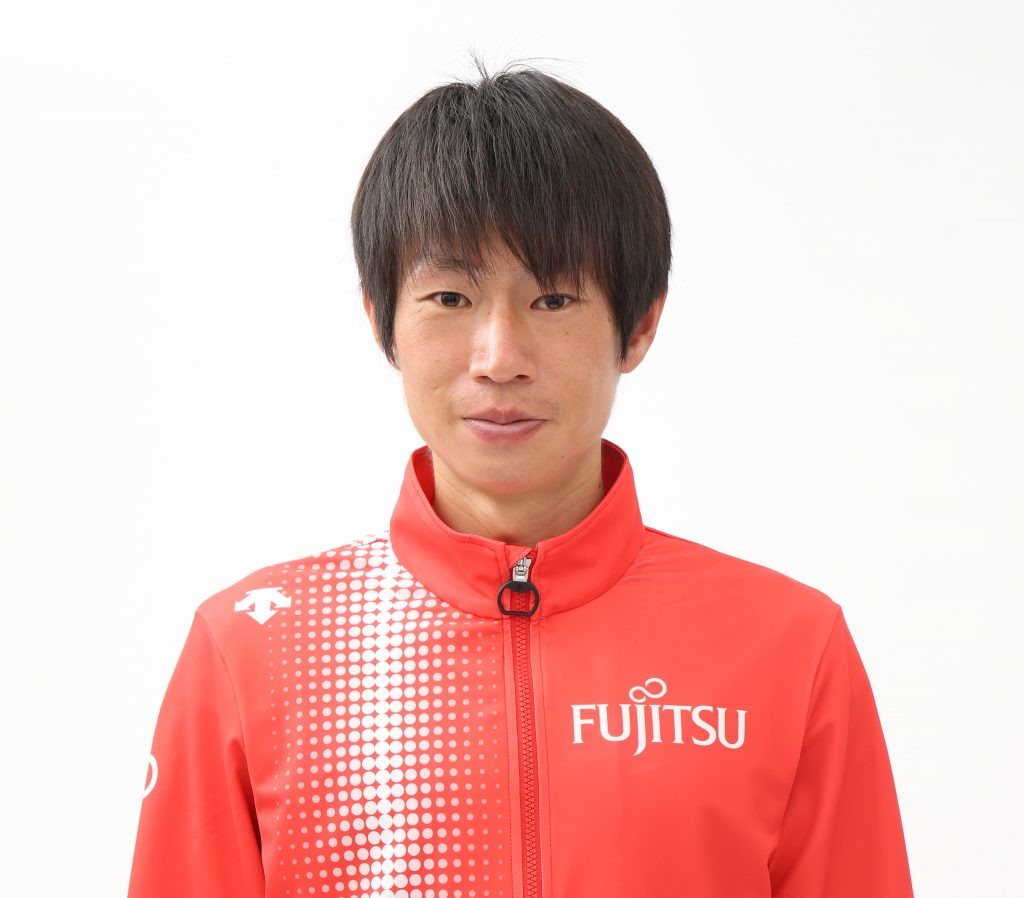
Comments from Nakamura:
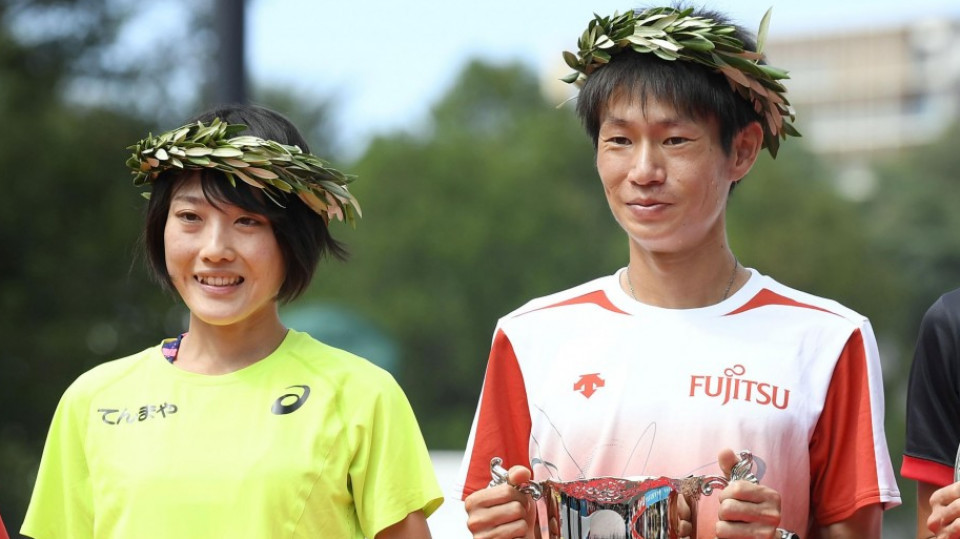
Lake Biwa was going to be my first race since the New Year Ekiden and my first marathon in a long time, so I'd been looking forward to it.
The pain has already faded and doesn't look like it will get in the way of training, but after looking carefully at the situation we decided not to risk more serious injury and to withdraw in favor of being ready for the Tokyo Olympics.
I apologize to everyone who had been expecting to see me run. My first priority is to get back on my feet and do the work necessary to show up at the Tokyo Olympics ready to race. I hope that you will all support me and cheer me on there.
by Brett Larner
Login to leave a comment
Osaka Marathon
In 2022 the Lake Biwa Mainichi Marathon and Osaka Marathon were held together. For 2023 the name of the marathon will be Osaka and both men and women can run the race. The original male-only competition was first held in 1946 and, having taken place every year since then, it is Japan's oldest annual marathon race. The early editions of...
more...Registration boom leads to tighter standards for Lake Biwa
Entries for the Lake Biwa Mainichi Marathon on 28 February closed on 22 January. With most other races cancelled or postponed due to the coronavirus crisis Lake Biwa this year received nearly double the normal number of applications for entry.
Putting on the race with such a large field poses problems and prevent the organisation from safely executing all planned coronavirus countermeasures. As a result revised entry standards will be applied based on World Athletics scoring points as follows: 10000m: 30:40; half marathon: 1:07:29; marathon: 2:27:30.
After proof of qualification from each entrant was checked on 25 January notifications were sent to all those who were unable to participate under these new standards. Information regarding refund of entry fees was included. Those eligible to participate will be notified around 5 February, on which date there will be a virtual press conference to announce the elite athlete field.
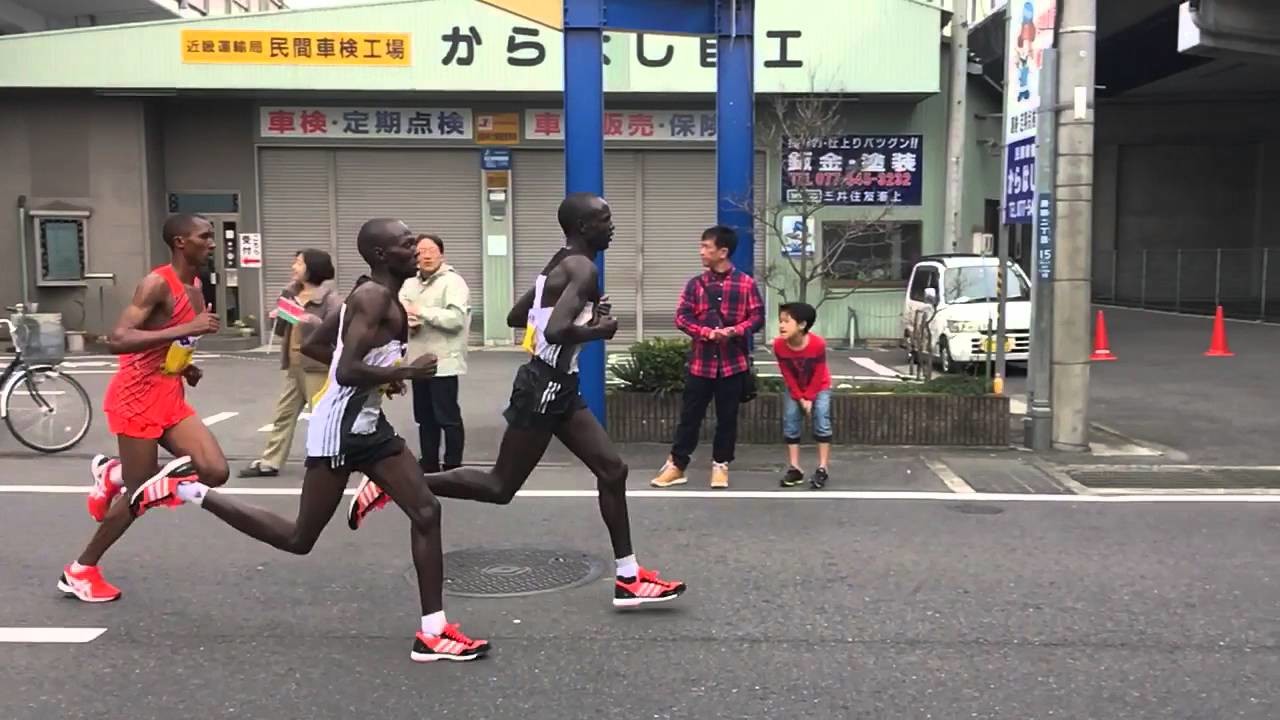
Further operational changes may become necessary as the situation regarding the virus evolves, said the organisers.
There are multiple reports where people have claimed that Lake Biwa has also rejected all entries from abroad, after initially being open to international participation.
by Brett Larner
Login to leave a comment
Osaka Marathon
In 2022 the Lake Biwa Mainichi Marathon and Osaka Marathon were held together. For 2023 the name of the marathon will be Osaka and both men and women can run the race. The original male-only competition was first held in 1946 and, having taken place every year since then, it is Japan's oldest annual marathon race. The early editions of...
more...Lake Biwa Marathon to be Subsumed Into Osaka Marathon beginning in 2022
On Dec. 25 it was learned that the longest-running marathon in Japan, the Lake Biwa Mainichi Marathon, will become a part of the Osaka Marathon beginning in 2022.
Following Lake Biwa's 76th edition on Feb. 28, 2021, it will next take place under the tentative title of the 10th Osaka Marathon and 77th Lake Biwa Mainichi Marathon Combined Competition.
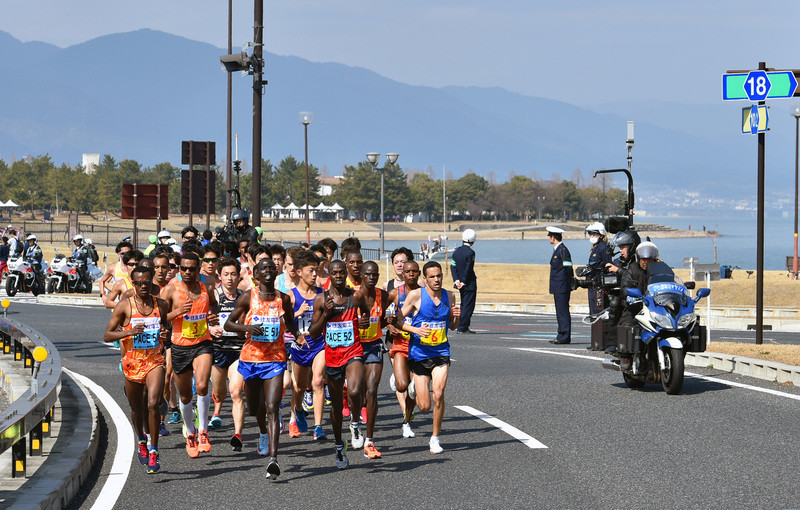
The Osaka Marathon executive committee finalized the plan at a meeting in Osaka on Dec. 25. Plans call for the 2022 race to take place on Feb. 27 utilizing the existing Osaka course.
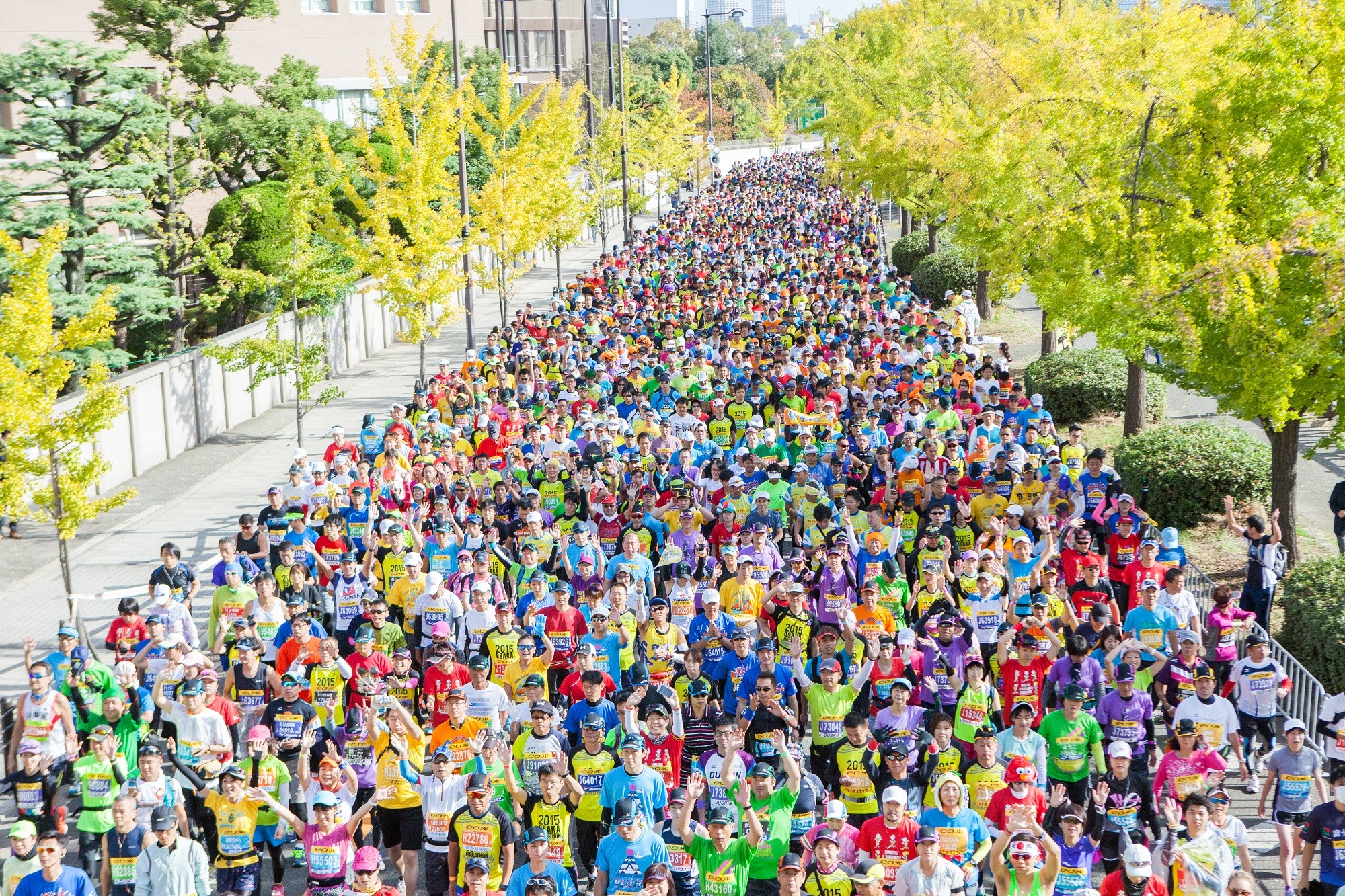
With an eye toward World Athletics' preference for large-scale races that combine elite and mass participation marathons, the plan will combine Lake Biwa's history of attracting top-level international and domestic athletes with Osaka's status as the second-largest mass-participation marathon behind only the Tokyo Marathon.
Organizers are aiming to go one level higher than Lake Biwa's current World Athletics ranking of gold to achieve the top-level platinum ranking, and hope that the arrival of such a prestigious event will help pave the way for success for the Kansai region at the 2025 Osaka World Expo.
Lake Biwa's first edition in 1946 was held in Osaka, moving to its current location in 1962. Its lakeside course has welcomed countless famous athletes and helped produced a large number of Olympic and World Championships team members.
The Osaka Marathon began in 2011. Starting in front of the Osaka Government Offices, its course passes many of Osaka's most popular tourist sites before finishing at Osaka Castle Park.
Its 10th running in late November this year was cancelled due to the coronavirus crisis, but it had attracted a field of 35,000 entrants.
by Brett Larner
Login to leave a comment
Osaka Marathon
In 2022 the Lake Biwa Mainichi Marathon and Osaka Marathon were held together. For 2023 the name of the marathon will be Osaka and both men and women can run the race. The original male-only competition was first held in 1946 and, having taken place every year since then, it is Japan's oldest annual marathon race. The early editions of...
more...Lake Biwa Mainichi Marathon, Japan's first World Athletics gold label race will be discontinued after 2021 Race
In an interview with a source involved in the decision, it was learned on Dec. 17 that the Lake Biwa Mainichi Marathon will be discontinued after next year's 76th edition on Feb. 28, 2021. One of Japan's three major men's marathons, Lake Biwa's position on the calendar as the last chance to qualify for Olympic and World Championships teams meant it has had a long history of being the place where Japan's best marathoners earned to right to compete against the best in the world. But in recent years Lake Biwa has felt increasing pressure from the rise of the Tokyo Marathon, where national records and other fast times have been run almost every year, and Lake Biwa's relevance and value began to come into question. The Osaka Marathon is likely to replace Lake Biwa as a national team selection race in the future.
Having begun in 1946, Lake Biwa is the oldest existing marathon in Japan. Along with the Fukuoka International Marathon and the Tokyo Marathon it is counted as one of Japan's three major men's marathons. But now its long, colorful history is set to come to an end next year when Olympic marathon trials winner Shogo Nakamura (28, Fujitsu) and others stand on its starting line one final time.
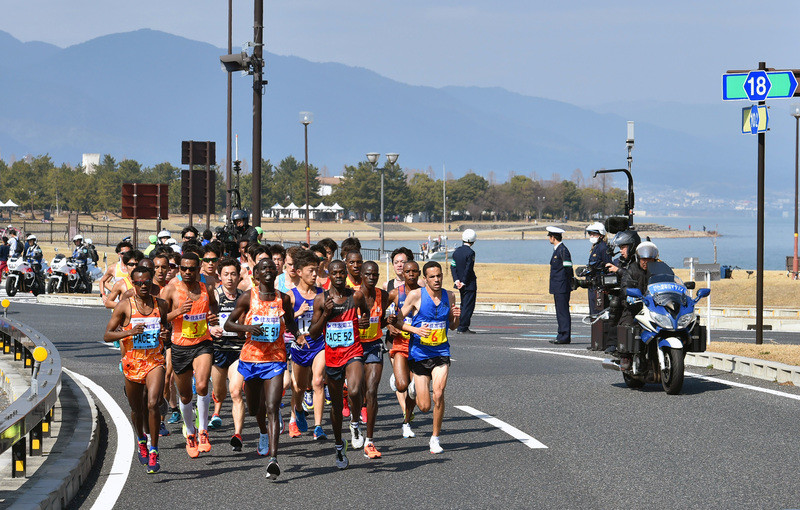
Starting and finishing on the track at Ojiyama Field, Lake Biwa has long been the final selection race for Olympic and World Championships teams. At both the 2012 London Olympics and 2016 Rio de Janeiru Olympics two of the three men's team members earned their places at Lake Biwa. At both the 1964 and 1968 Olympics all three members were chosen there. Its position on the calendar relative to Fukuoka and Tokyo meant the battles were always furious, and those who emerged victorious went on to take on the world.
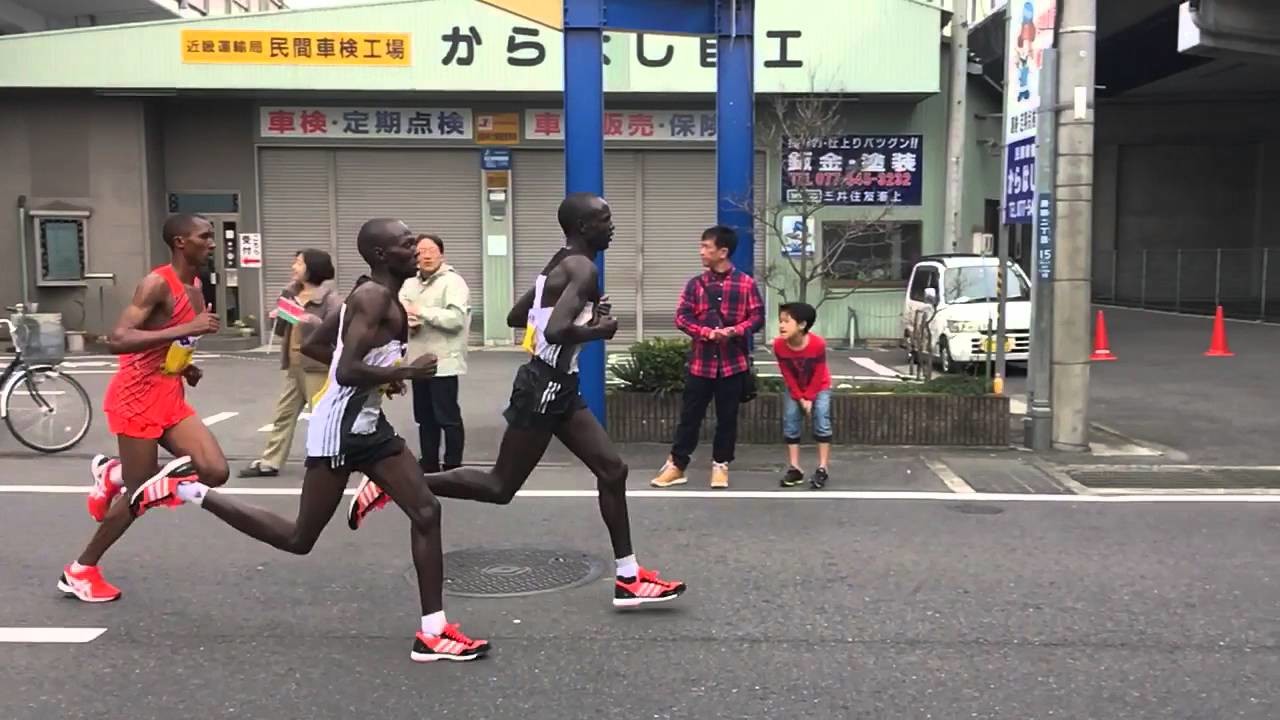
There's no question that Lake Biwa has been the site of countless classic races and a vital part of Japan's marathon tradition, but in recent years its relevance has faded. One of the major factors in this was the Tokyo Marathon's change to a faster course in 2017. In 2018 Yuta Shitara (29, Honda) broke the Japanese national record in Tokyo, and two years later Suguru Osako (29, Nike) followed Shitara's lead and did the same. With that record of success, Tokyo has become the first choice for Japanese men targeting fast times.
The outcome of that change for Lake Biwa, an elite-only marathon, was that the athletes who could have provided the fireworks started staying away. With the Tokyo Marathon having moved to Lake Biwa's traditional date the first Sunday in March two years ago, Lake Biwa's shift a week later meant it was now the same day as the Nagoya Women's Marathon, hiding it in the shadows even further. The race's viability, financial and otherwise, came into question.
According to those involved, the Osaka Marathon is the most likely candidate to replace Lake Biwa as a national team selection event. With 35,000 people running on a downtown urban course it is the second-largest marathon in Japan after only Tokyo. With that kind of modern prestige to it, Osaka is highly likely to pick up the selection race label.
Modernity has a way of burying history. The MGC Race, a one-shot selection race for the Tokyo Olympics, was a major success. Those in power are leaning toward using the same kind of single trials race for the 2024 Paris Olympics. With the coronavirus crisis an ongoing issue, this is a period of transition. The Japanese marathon world isn't immune to those transitional forces, and we can only hope that its reorganization and reformation produce even more exciting races.
by Brett Larner
Login to leave a comment
Osaka Marathon
In 2022 the Lake Biwa Mainichi Marathon and Osaka Marathon were held together. For 2023 the name of the marathon will be Osaka and both men and women can run the race. The original male-only competition was first held in 1946 and, having taken place every year since then, it is Japan's oldest annual marathon race. The early editions of...
more...Olympic Marathon Trials Winner Shogo Nakamura Plans to Run Lake Biwa Mainichi Marathon
On Dec. 15, Olympic marathon trials winner Shogo Nakamura (28, Fujitsu) sat for an online interview from his training base in Tokunoshima, Kagoshima, revealing that he plans to run the Feb. 28 Lake Biwa Mainichi Marathon.
Reporting that his training has been progressing steadily, Nakamura enthusiastically said, "The goal is to win in Lake Biwa to build up some momentum for the Olympics. Time is important too, but the main goal is to win."
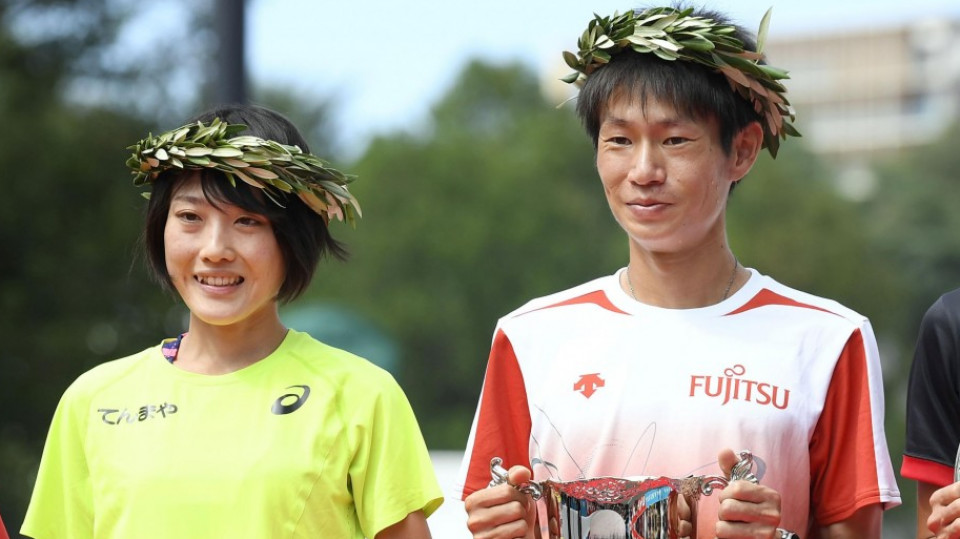
Lake Biwa will be a year and a half since Nakamura's last marathon, the Sept., 2019 MGC Race Olympic trials.
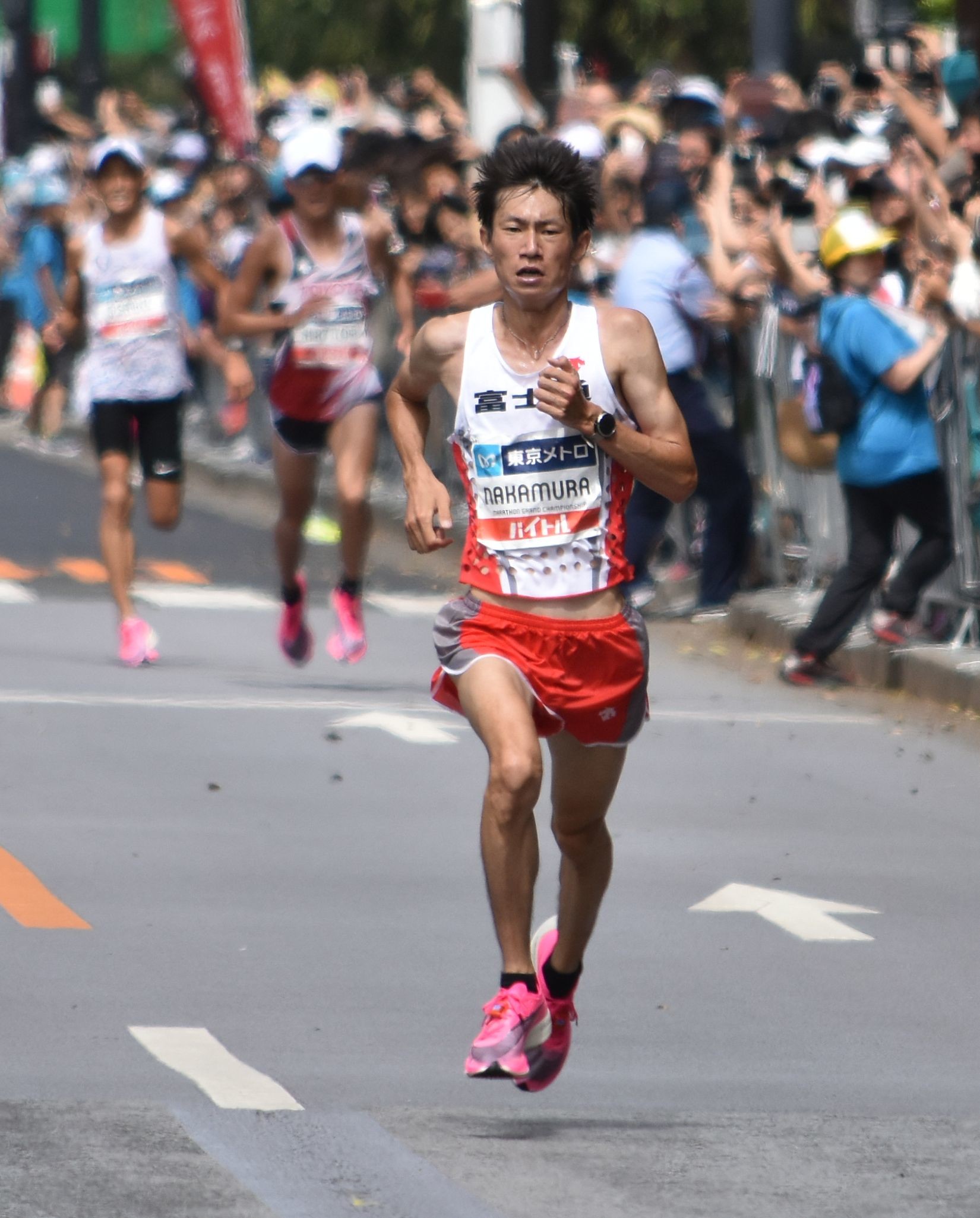
Since his victory there everything about the Olympic marathon has changed, with the venue forcibly relocated to Sapporo and the Olympics themselves postponed for a year. But through it all he has remained true to his path without wavering.
Nakamura ran his debut marathon at Lake Biwa in 2018, and it is no accident that he is returning there for his final marathon before the Olympics. "I was the top Japanese finisher in 2018 and got my place at the MGC Race there," he said. "
But instead of just going back to where it all started, I want to go into the Olympics with a fresh new mindset. I want to win this time, not just be the top Japanese man."
Before that, Nakamura will kick off his Olympic year early at the Jan. 1 New Year Ekiden national corporate men's championships. He expects to be put on either the critically important Fourth or Fifth Stage, but whichever it ends up being, he said, "I want to win my stage and help my team succeed."
by Brett Larner
Login to leave a comment
Osaka Marathon
In 2022 the Lake Biwa Mainichi Marathon and Osaka Marathon were held together. For 2023 the name of the marathon will be Osaka and both men and women can run the race. The original male-only competition was first held in 1946 and, having taken place every year since then, it is Japan's oldest annual marathon race. The early editions of...
more...2021 Lake Biwa Marathon to Go Ahead Feb. 28
With race after race canceling or postponing, this week the organizers of the Lake Biwa Mainichi Marathon announced plans for next year's 76th running to go ahead on Feb. 28, 2021.
A week earlier that its traditional date due to the Tokyo Marathon's move to March, the planned date comes with the caveat that, "depending on the future situation with regard to COVID-19, there may be changes to the race's operation, including the possibility of cancelation."
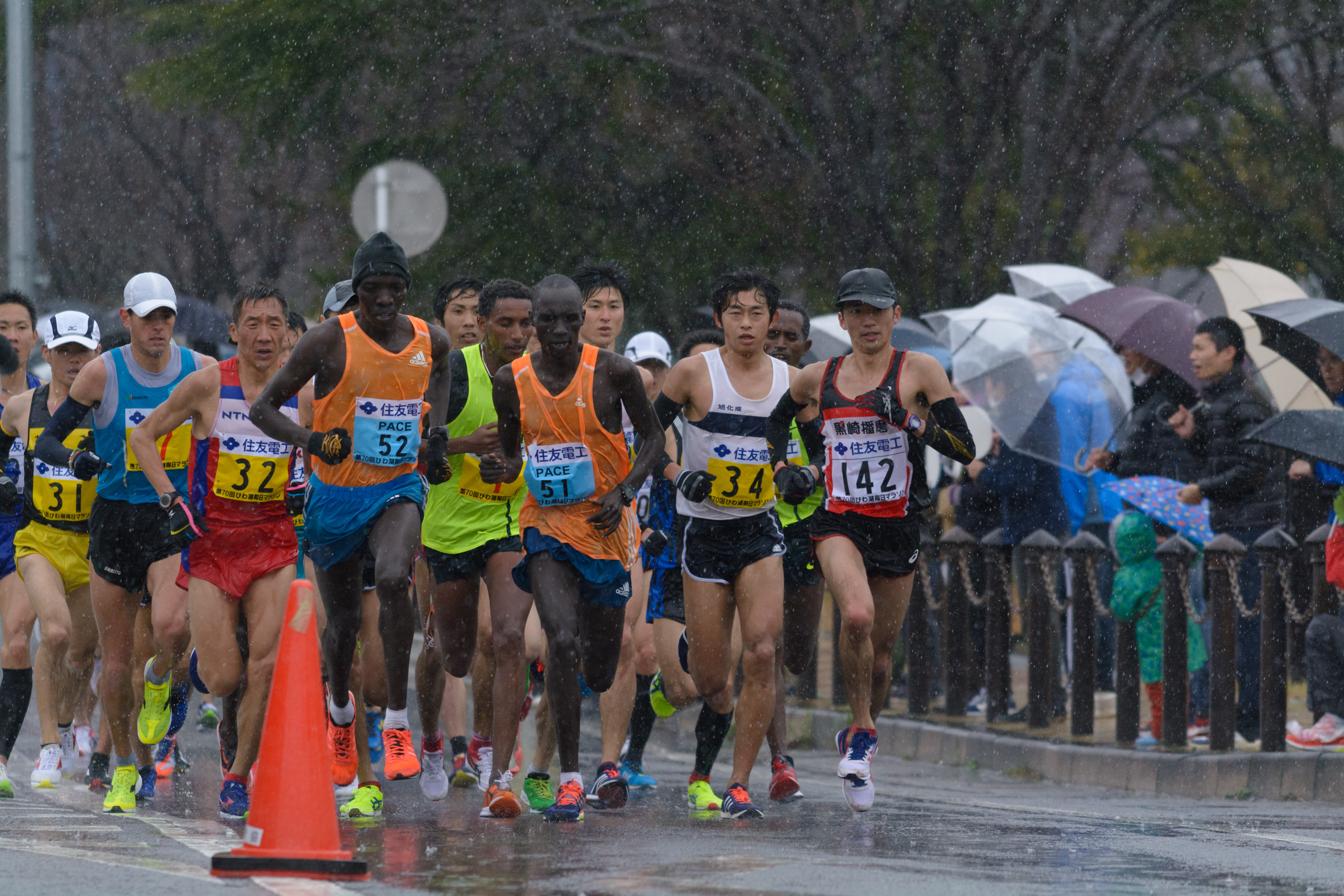
But with that said, it looks like the organizers plan no additional restrictions on their event's field beyond the normal qualifying times and requirement for national federation approval.
In that past that has typically meant a field of under 200 finishers from Japan and abroad. For the domestic field, with no Beppu-Oita or Tokyo Marathon there's sure to be record-setting depth. as between Beppu-Oita, Tokyo and Lake Biwa this year 29 men went sub-2:10 and 50 sub-2:12.
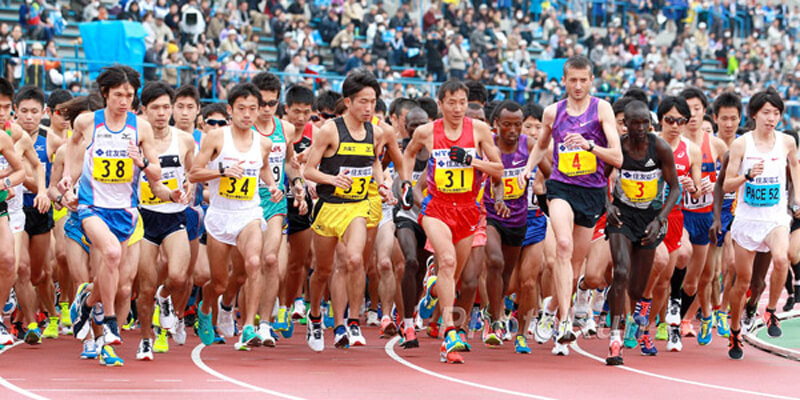
For international men, if it actually happens Lake Biwa will be one of the only elite spring marathons in the world. In contrast to the 2020 Fukuoka International Marathon and 2021 Nagoya Women's Marathon, both of which restricted their fields to those already in Japan, Lake Biwa appears to be open to any internationals who meet the standards, have federation approval, and are willing to make the trip.
At the moment immigration restrictions would prevent that from being an easy option for most nationalities, but as it works on its athlete COVID protocols for the Tokyo Olympics it's quite possible that changes to Japan's policies could open the door to a legit international field at Lake Biwa. With the race's application deadline standing at Dec. 31 there's just over 2 months for those changes to happen one direction or the other.
Major Japanese marathons still scheduled to happen in 2020 and 2021 marathon announcements to date:
Dec. 6: Fukuoka International Marathon (370) - scheduled with limited field size.
Dec. 20: Hofu Marathon (2,724) - scheduled with limited field size.
by Brett Larner
Login to leave a comment
Osaka Marathon
In 2022 the Lake Biwa Mainichi Marathon and Osaka Marathon were held together. For 2023 the name of the marathon will be Osaka and both men and women can run the race. The original male-only competition was first held in 1946 and, having taken place every year since then, it is Japan's oldest annual marathon race. The early editions of...
more...Macharia Ndirangu wins Lake Biwa Marathon; Shogo Nakamura leads Japanese in seventh
OSAKA – Shogo Nakamura led the Japanese runners in the Lake Biwa Mainichi Marathon on Sunday, finishing in seventh place behind winner Macharia Ndirangu of Kenya.
Nakamura finished the sunny Shiga Prefecture race in 2 hours, 10 minutes and 51 seconds, while Ndirangu crossed the tape with a comfortable lead in 2:07:53.
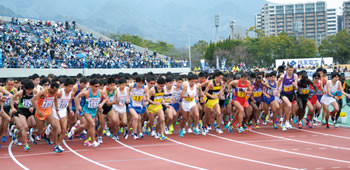
Kenyan Albert Korir (2:08:17) beat his personal best for second, and New Zealand’s Jake Robertson (2:08:26) broke a 34-year national record to finish third. Besides Korir, Nakamura and the top three runners were all making their marathon debut.
The result earned Nakamura a spot in next year’s Grand Championship, a qualifying race for Japanese runners for the 2020 Tokyo Olympics.
“I was desperate in the last kilometer because I didn’t want to miss (qualifying for the Grand Championships),” Nakamura said. “I was able to run with confidence since I trained hard.”
Masato Imai and Takuya Noguchi finished ninth and 10th, respectively.
Login to leave a comment
Osaka Marathon
In 2022 the Lake Biwa Mainichi Marathon and Osaka Marathon were held together. For 2023 the name of the marathon will be Osaka and both men and women can run the race. The original male-only competition was first held in 1946 and, having taken place every year since then, it is Japan's oldest annual marathon race. The early editions of...
more...An assault of Wilson Kipsang's course record on tap at the 75th edition of the Lake Biwa Marathon
An assault of Wilson Kipsang's 2:06:13 course record from 2011 is on tap at the 75th edition of the Lake Biwa Marathon, a World Athletics Gold Label road race, in Otsu, Japan, on Sunday.
Three sub-2:06 and two sub-2:07 runners are in the line-up. Four of those have career bests faster than Kipsang's nine-year-old record. All of those performances came in 2019, suggesting that quartet is on top of their game.
The fastest in the field is Evan Chebet who clocked 2:05:00 in winning last year's Buenos Aires Marathon. Chebet has also produced sub-2:06 runs in Valencia, Berlin and Seoul and also finished fourth in the Tokyo Marathon with 2:06:42.
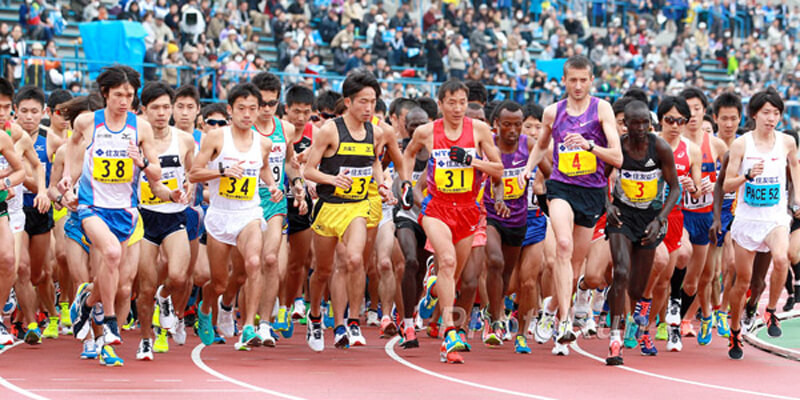
The next fastest is Filex Chemonges who broke the Ugandan national record with a 2:05:12 performance in Toronto last year. He has run three marathons and each time improved his personal best.
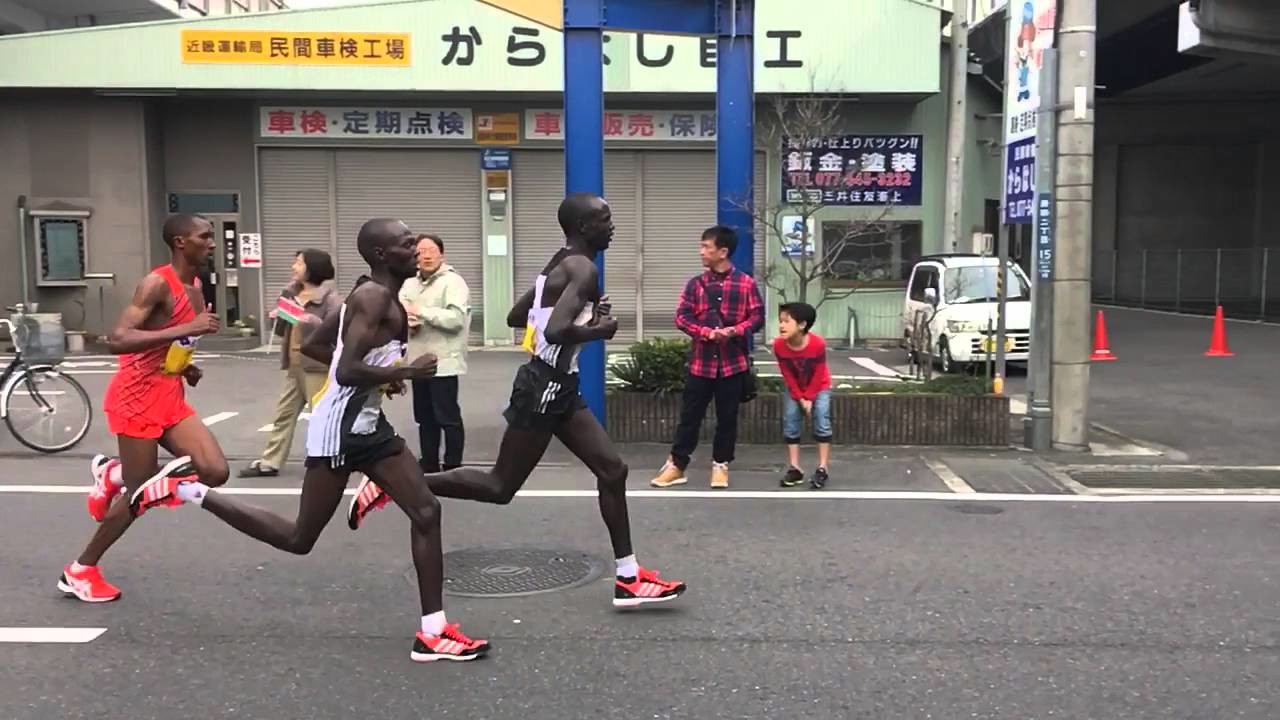
Felix Kiprotich, the third fastest in the field, won the 2019 Daegu Marathon with 2:05:33, and also has three more sub-2:07 runs to his credit. Samuel Ndungu, the Lake Biwa winner in 2015, improved his personal best to 2:06:02 in Lisbon last year. The final sub-2:07 man in the field is Dutch national record holder Abdi Nageeye who improved clocked 2:06:17 in Rotterdam, also last year.
Former winners joining Ndungu are 2018 champion Joseph Ndirangu and 2019 winner Salah Bounasar. Other contenders include Stephen Mokoka who was third in 2019 in 2:07:58, the second-best time of his career.
The race also serves as the final chance for Japanese men to win a spot on the Olympic Marathon team. To secure their spot, a runner must run faster than the 2:05:29 national record set last week by Suguru Osako.
The fastest among the five invited Japanese runners is Yuki Kawauchi, with a lifetime best of 2:08:14. Other high-profile Japanese include Takuya Noguchi, with a 2:08:59 best; Kohei Ogino, who's clocked 2:09:36; Shohei Otsuka, a 2:10:12 man; and Kengo Suzuki, who has a 2:10:21 best.
by World Athletics
Login to leave a comment
Osaka Marathon
In 2022 the Lake Biwa Mainichi Marathon and Osaka Marathon were held together. For 2023 the name of the marathon will be Osaka and both men and women can run the race. The original male-only competition was first held in 1946 and, having taken place every year since then, it is Japan's oldest annual marathon race. The early editions of...
more...The organizers of the Lake Biwa Marathon Ask People Not to Come Cheer
The organizers of the Mar. 8 Lake Biwa Marathon have asked people not to come cheer along the course in order to help slow the spread of the COVID-19 coronavirus.
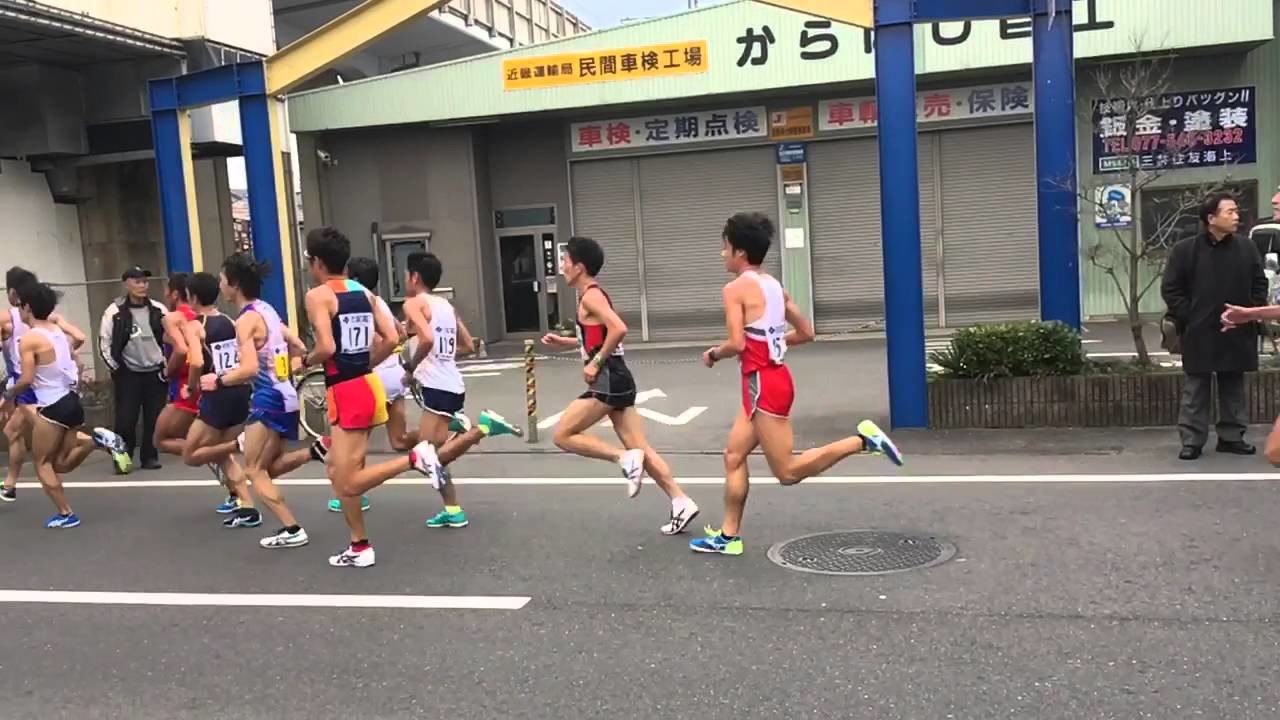
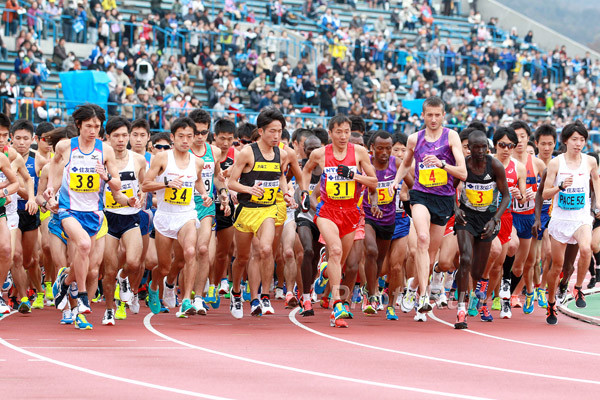
People involved with the race are being asked to wear masks and wash their hands, and alcohol disinfectants are being distributed as measures against infection.
The post-race award ceremony at a local hotel and an elementary school students' 1000 m track race during the marathon have been canceled in order to reduce the number of people assembled.
by Brett Larner
Login to leave a comment
Osaka Marathon
In 2022 the Lake Biwa Mainichi Marathon and Osaka Marathon were held together. For 2023 the name of the marathon will be Osaka and both men and women can run the race. The original male-only competition was first held in 1946 and, having taken place every year since then, it is Japan's oldest annual marathon race. The early editions of...
more...2016 Rio Olympics marathoner 39-year-old Suehiro Ishikawa will retire from competition at the end of March
Japan's 39-year-old Suehiro Ishikawa, 2016 Rio Olympics marathoner announced that he will retire from competition at the end of the month.
At the time of the Rio Olympics Ishikawa was 36 years and 11 months old, surpassing 1996 Atlanta Olympics marathoner Hiromi Taniguchi's record of 36 years and 3 months to become Japan's oldest-ever Olympic marathoner. He finished 36th.
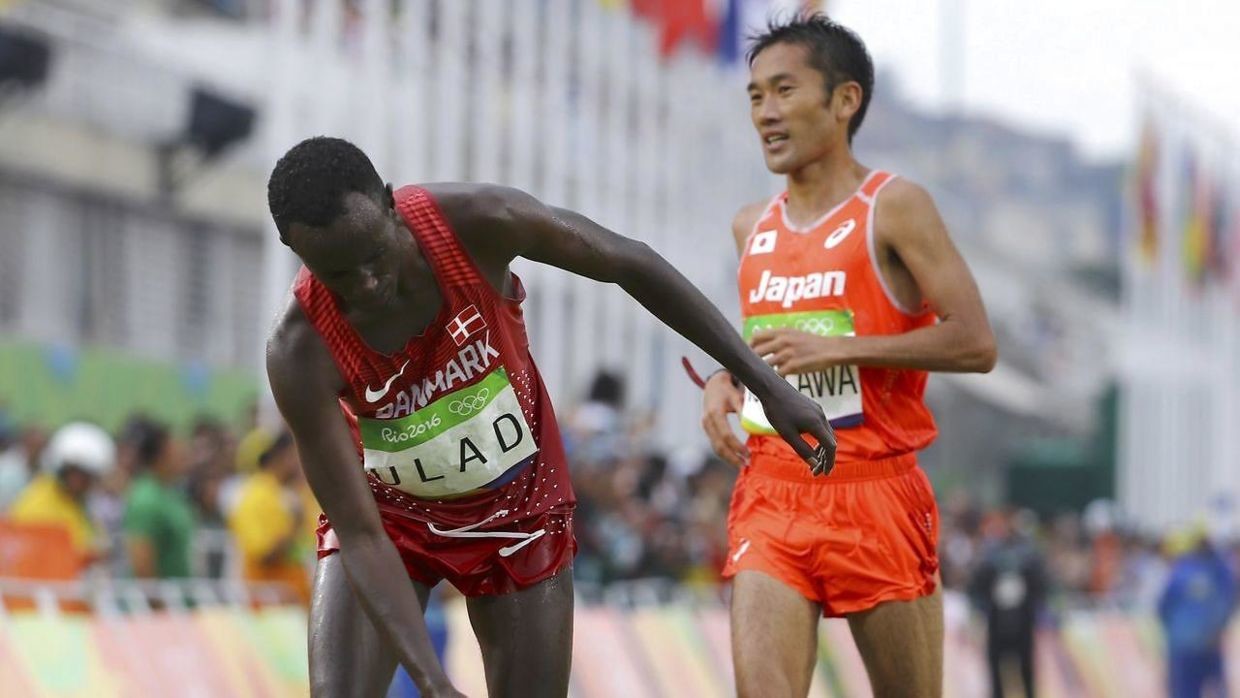
"Since I started running high school it's been 24 years," said Ishikawa at the press conference. "I've been with Honda for 17 years, and I made it all the way to the top, the Olympics. I'm glad that I've kept going this long.
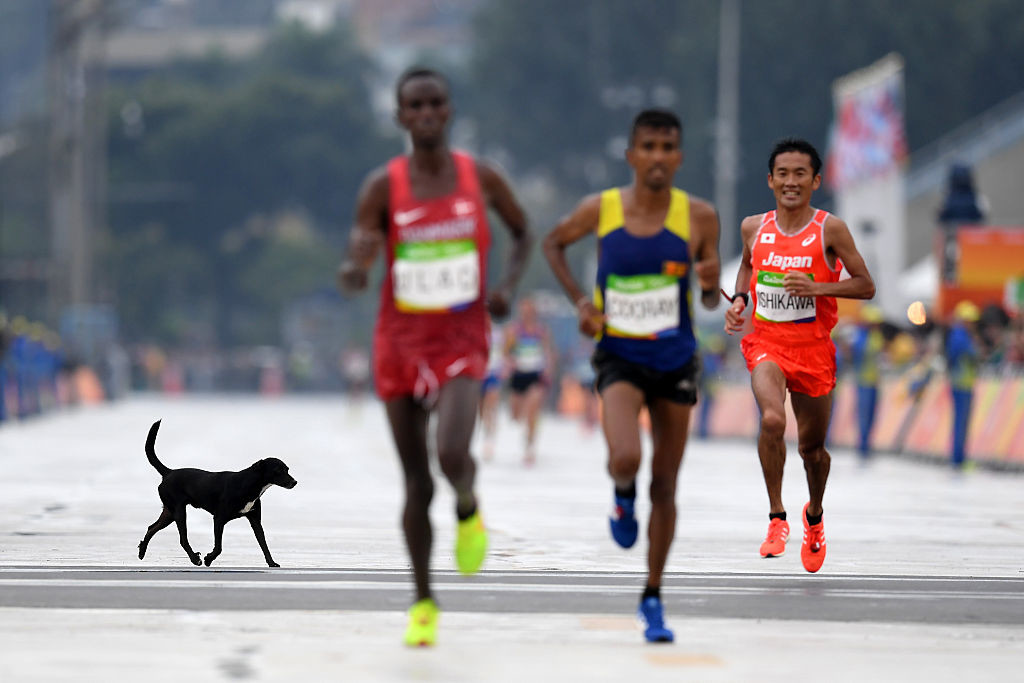
Ishikawa ran the Lake Biwa Mainichi Marathon on March 10 but dropped out after only 10 km. It will be his last race of his career.
"It was the first time in my career that I'd ever DNFd, and I thought, 'OK, this is where it ends,'" said Ishikawa. Shortly after the race he made the decision to retire.
Beginning in April he will become an assistant coach with the Honda team.
Login to leave a comment
Osaka Marathon
In 2022 the Lake Biwa Mainichi Marathon and Osaka Marathon were held together. For 2023 the name of the marathon will be Osaka and both men and women can run the race. The original male-only competition was first held in 1946 and, having taken place every year since then, it is Japan's oldest annual marathon race. The early editions of...
more...Bermuda Olympian and professional triathlete Tyler Butterfield will make his debut at the Lake Biwa Mainichi Marathon
Tyler Butterfield will literally run his way into unknown territory when he makes his debut at the Lake Biwa Mainichi Marathon in Otsu, Shiga, Japan.
The Bermuda Olympian and professional triathlete is scheduled to make his first appearance in the 26.2 mile race on March 10 and is under no illusion as to the enormity of the task at hand competing against the world’s elite runners.
“That will be an elite marathon so for me it’s my first one ever outside of Commonwealth Games and its going to be a calibre way above my limit,” Butterfield said.
“I think it was won in around 2:06 or 2:07 last year so I’m going to be 15-20 minutes behind.
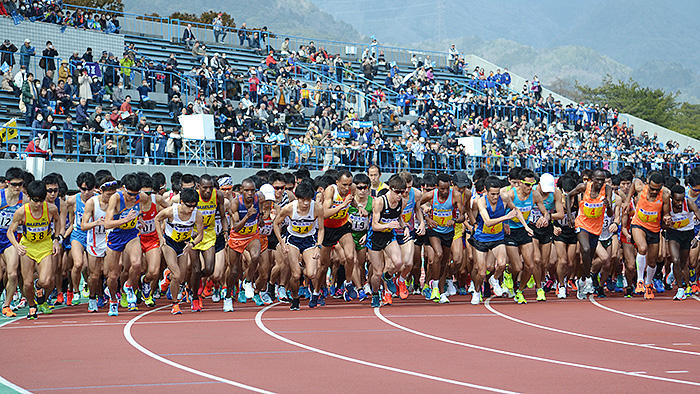
“But it’s a great opportunity to run with some of the best guys in the world. It’s going to be a lot of people better than me and I can challenge myself.”
The Lake Biwa Mainichi Marathon, a male only competition, is one of the prominent Japanese races of the year and the country’s oldest annual marathon.
Butterfield warmed up for March’s commitment in Japan with a solid display at last weekend’s Bermuda Marathon Weekend where he placed runner up in the adult mile, International 10K and Half Marathon to capture the Half Triangle Challenge title at the first attempt.
“The Bermuda Race Weekend was awesome and just a great hit out for the Lake Biwa Marathon,” he said. “It was great to come back and do the mile, 10K and the Half because I’ve actually never done that before.
Login to leave a comment
Osaka Marathon
In 2022 the Lake Biwa Mainichi Marathon and Osaka Marathon were held together. For 2023 the name of the marathon will be Osaka and both men and women can run the race. The original male-only competition was first held in 1946 and, having taken place every year since then, it is Japan's oldest annual marathon race. The early editions of...
more...Jake Robertson sets a new New Zealand National Record at Lake Biwa Marathon
Login to leave a comment
New Zealander Jake Robertson Long-awaited Marathon Debut Sunday
Login to leave a comment
Japan’s Project Exceed Program has Japanese Runners hyped up...next chance to be a millionaire is Sunday
Login to leave a comment
There has never been this much money put on the table for marathoners and their coaches
Login to leave a comment
Erekiel Chebii Returns and is the one to beat at Lake Biwa Mainichi Marathon
Japan Running
Login to leave a comment


